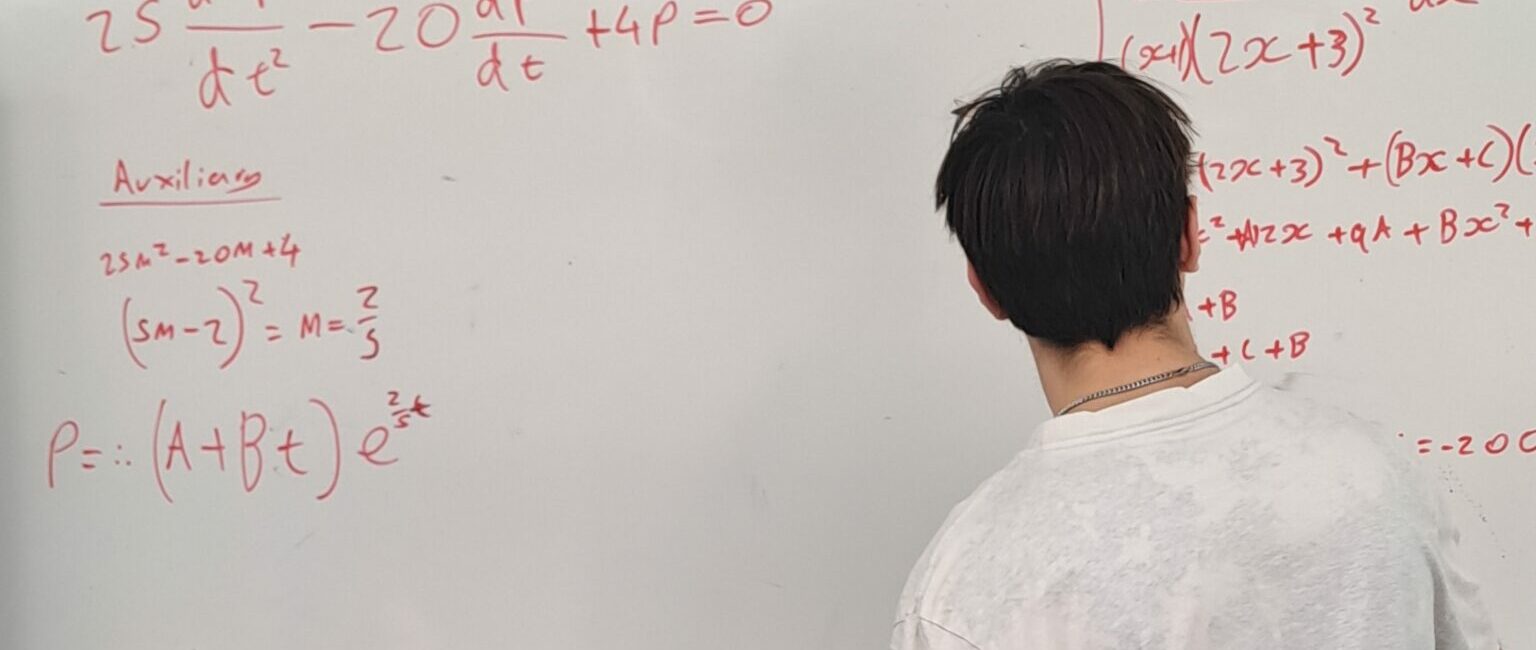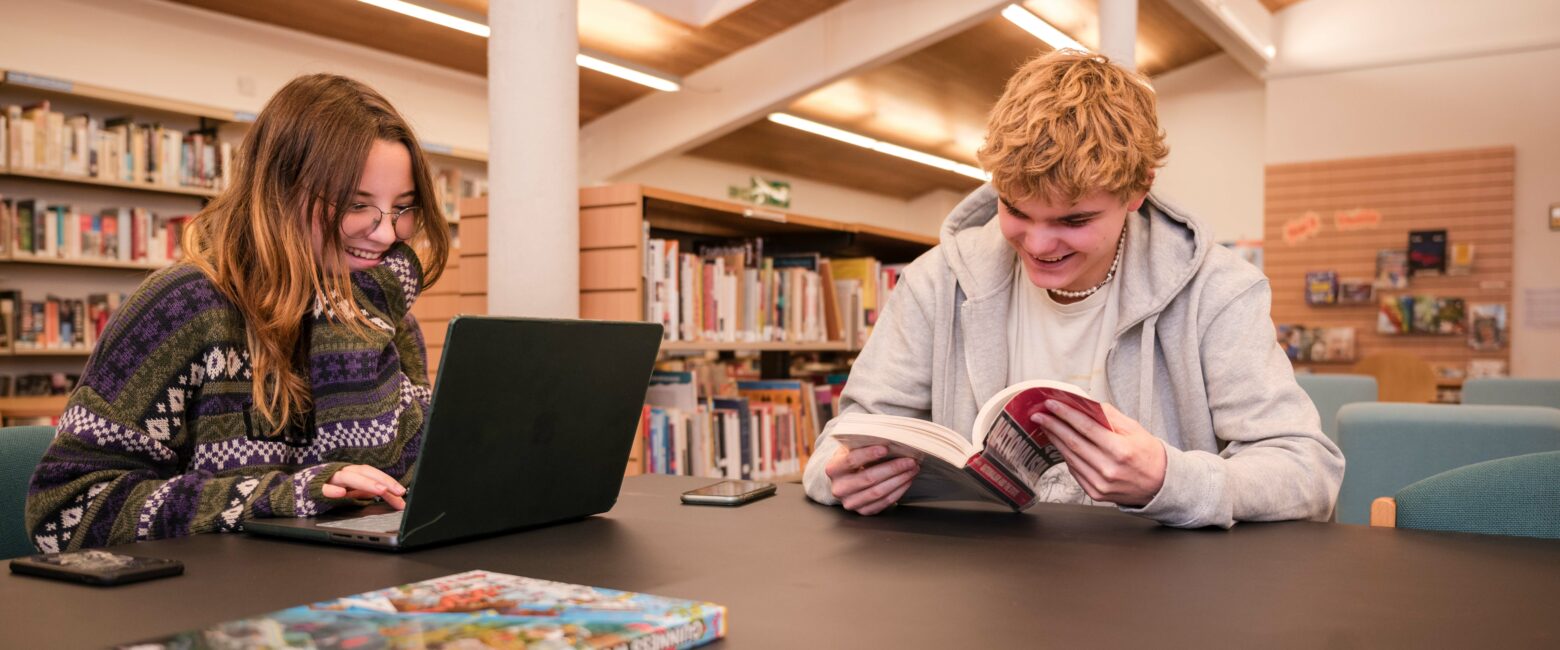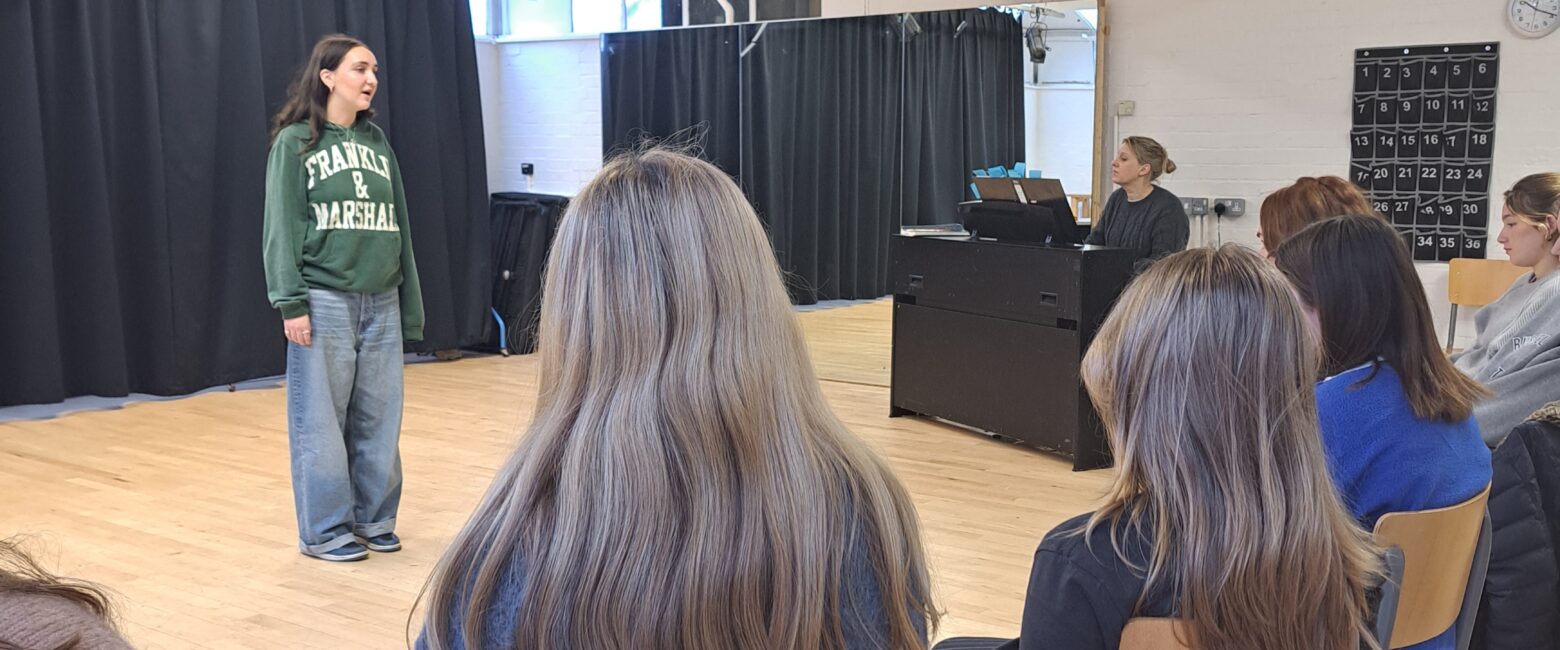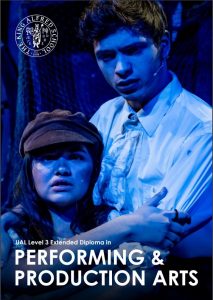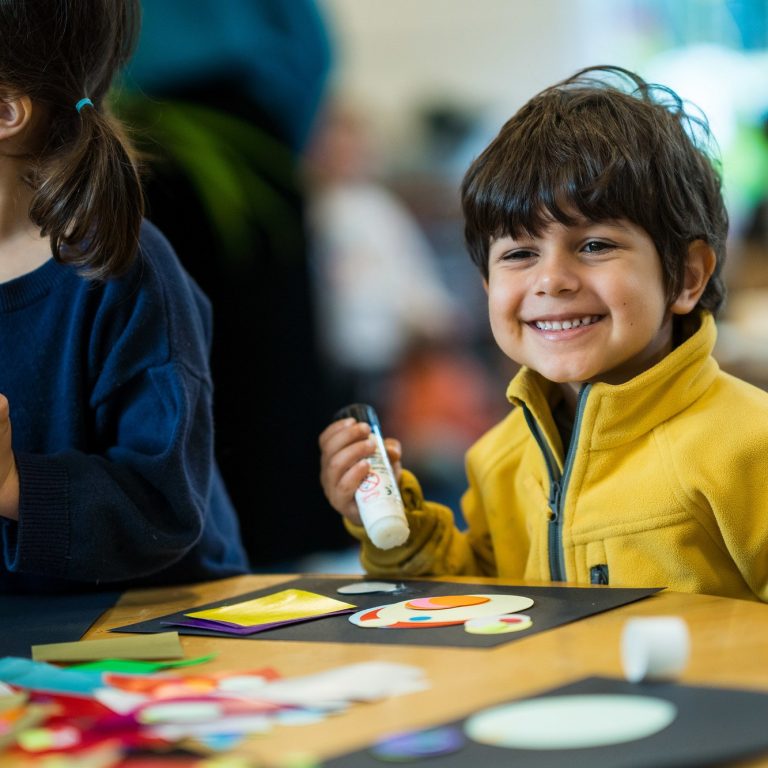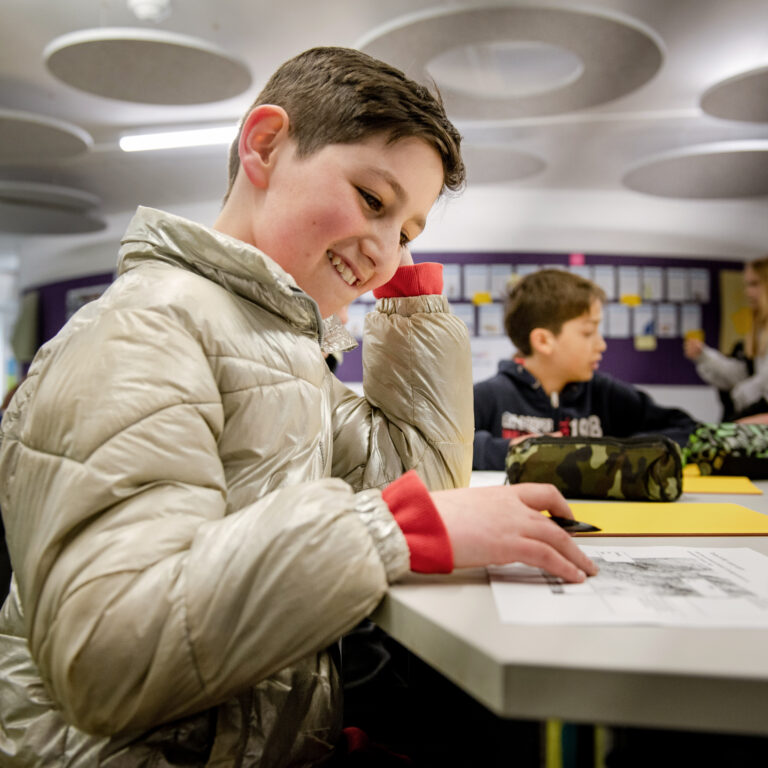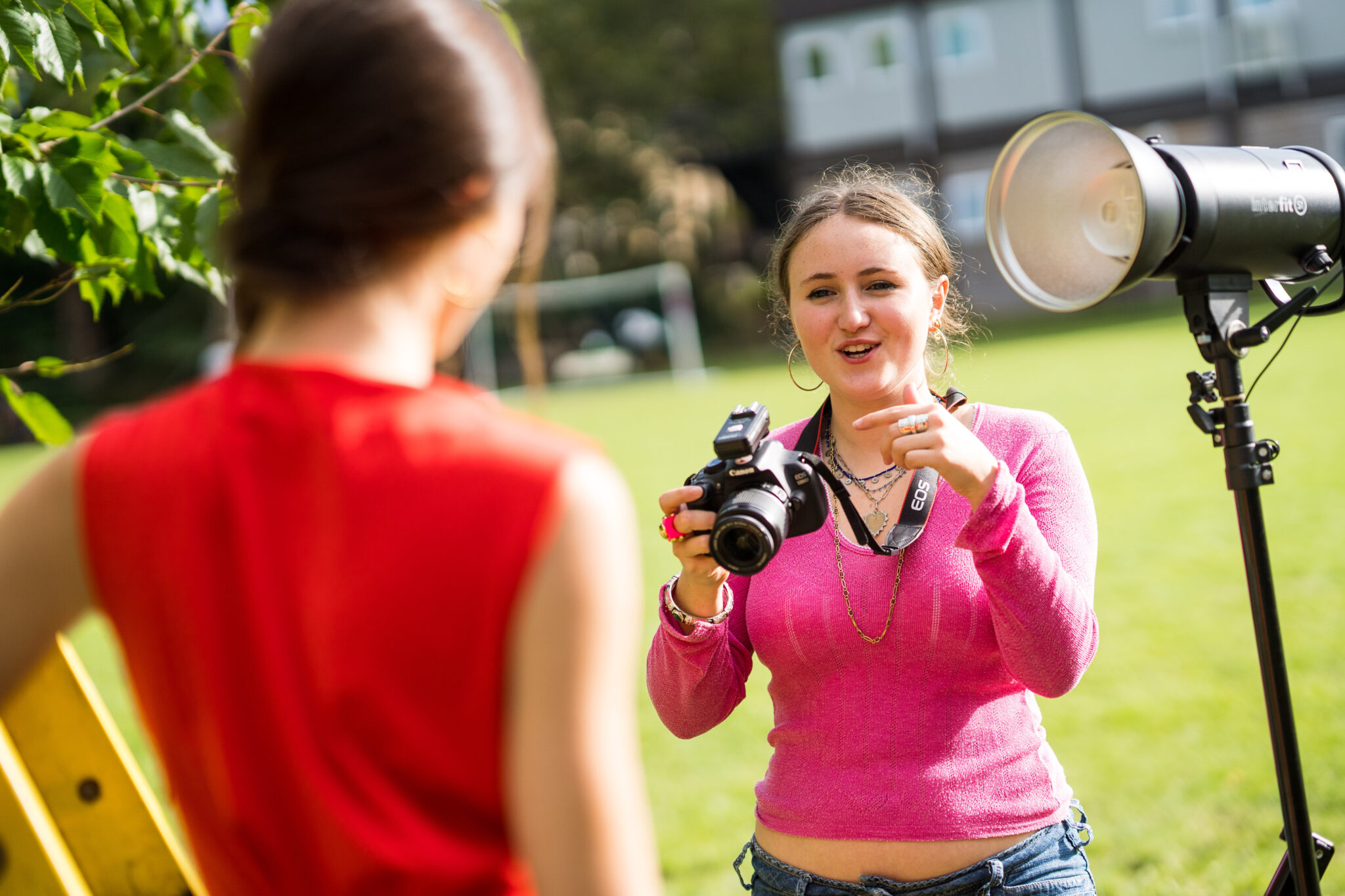A Level (and equivalent) Courses
Advanced level courses
The King Alfred School offers a wide range of A level courses, as well as the UAL Level 3 Extended Diploma in Performing & Production Arts, the UAL Level 3 Diploma in Music Performance and Production and The Extended Project Qualification (EPQ).
We offer the following subjects:
Art and Design
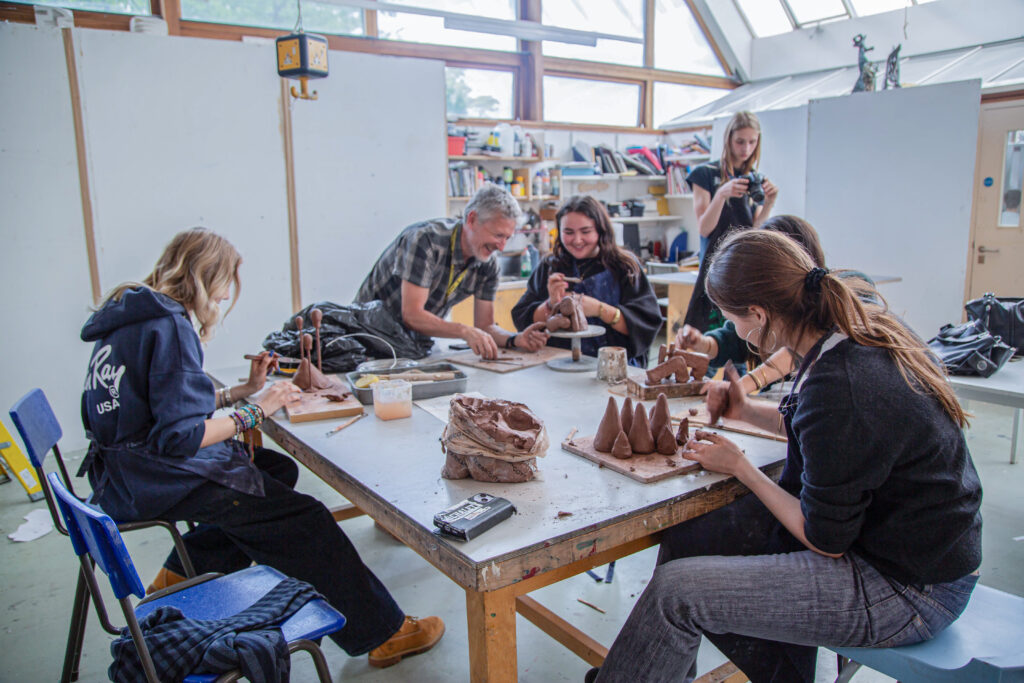
Art and Design
Exam board: OCR
Art and Design at A level will build on the experiences of students at GCSE.
Projects will be broadly theme-based with students encouraged to build up research across a range of ideas and disciplines. Increasing independence, initiative and ambition will be features of working at this level, as will a developing engagement with issues around the practice and theories of contemporary art and design.
Students will gain experience of the following in each year:
- Developing a body of independent imaginative work and ideas in 2 and 3 dimensions Group and individual work to long and short briefs
- Life drawing and experimental approaches to drawing
- Art workshops, gallery visits to commercial and public collections
- Discussion and practical-based work in a range of materials
- Bi-annual Year 12/13 foreign art trip (we have been to Eindhoven, Berlin, Paris, Rome and Venice in recent years)
- Mounting and hanging their own interim exhibitions throughout the course
- Working with a range of teachers trained in different disciplines
- Managing their own permanent studio space in Year 13
Assessment
- Unit 1: Portfolio (30%)
The portfolio is an exploratory investigation over the first year of the course in which students build a diverse and substantial folder of work. Work is based around two themes and the focus is on investigation skills and experimentation rather than resolved outcomes. Students will develop their own ideas through sketchbook exploration, and study the working practices and contexts of a range of related artists, designers and creative practitioners. They will be encouraged to be independent, inventive and bold, and to visit exhibitions to inform their work. - Unit 2: Critical and Contextual Study (30%)
The critical and contextual study is a written essay of 3000–3500 words with relevant illustrations. The focus of the study is an aspect of the visual arts of interest to the candidate. The title and subject of the critical and contextual study is expected to evolve through ideas generated by candidates during either the first or second year of the course. With guidance from the teacher, candidates develop their own focus and title for their individual study. Visits to exhibitions and museums will help students to narrow their focus. The Critical Study will be written during the second year of the course. - Unit 3: Project (40%) – Year 13
The project involves development of a sustained piece of studio practice culminating into a fully resolved piece or body of work. The ‘starting point’ for the Project is set by the Cambridge exam board and is given to students at the end of the first year. Students are encouraged to investigate and explore mediums and processes that inspire them, and to build a body of informed work that culminates in ambitious and individual resolutions. Project work will be exhibited at the end of the course.
Entry requirements
A Grade 7 at GCSE in an Art related course.
Head of Department: Will Lewer
Biology
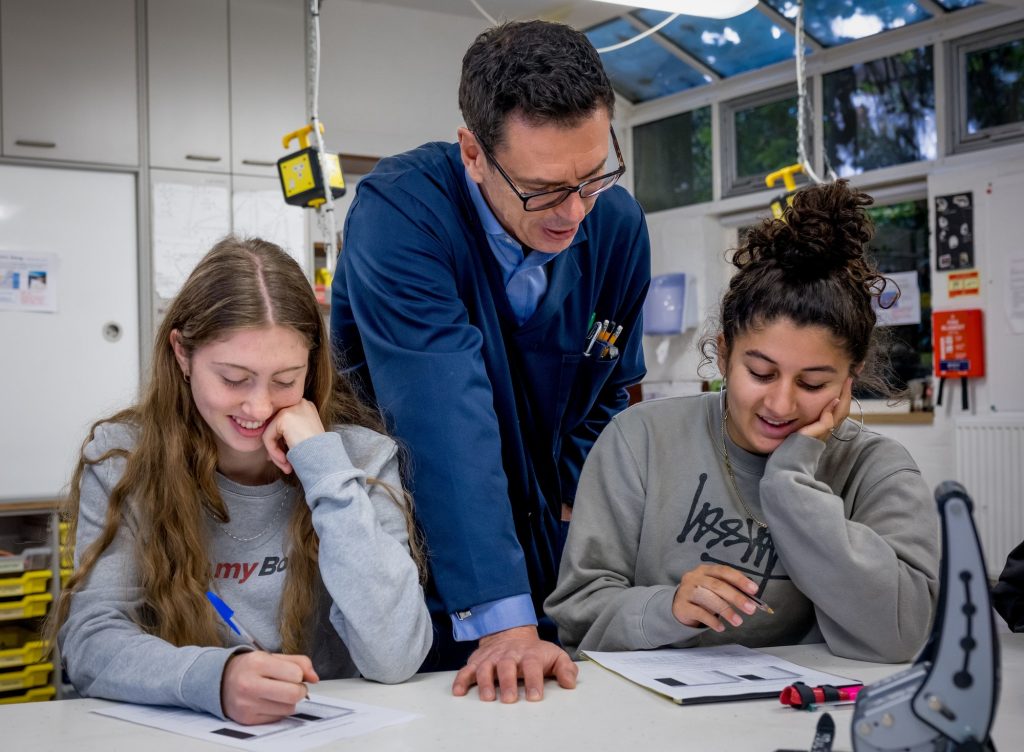
Biology
Exam board: Edexcel Biology A (Salters – Nuffield)
This course has been designed to engage and inspire students by showing how an understanding of many contemporary issues requires a grasp of fundamental biological ideas.
The A level course in the first year of Sixth Form contains a well-balanced spread of topics including blood circulation and the heart, DNA and protein synthesis, enzymes, cell biology, evolution and biodiversity. Associated medical issues such as cardiovascular disease and cystic fibrosis are also explored. A level topics include forensic science, ecology, microorganisms, sport science, biochemistry, the nervous system and an introduction to how the brain works. The body’s response to infection is studied and the diseases which can result when the immune system fails to cope are investigated.
There is no coursework component within the course, however, students complete a series of core practicals that will be examined in their written exams. Students will undertake a residential field trip with The Field Studies Council (FSC) to cover the ecological sampling and successions aspects of the course.
The Biology Department is well resourced with up-to- date equipment such as a polymerase chain reaction thermocycler and gel electrophoresis.
Year 1
- Topic 1: Lifestyle, Health and Risk
- Topic 2: Genes and Health
- Topic 3: Voice of the Genome
- Topic 4: Biodiversity and Natural Resources
Year 2
- Topic 5: On the Wild Side
- Topic 6: Immunity, Infection and Forensics.
- Topic 7: Run for your Life
- Topic 8: Grey Matter.
Assessment
- Paper 1: The Natural Environment and Species Survival (33.33%)
Two hours. 100 marks. - Paper 2: Energy, Exercise and Co-ordination (33.33%)
Two hours. 100 marks. - Paper 3: General and Practical Applications in Biology (33.33%)
Two hours. 100 marks.
Entry requirements
Grade 7/7 in Double Science or Grade 7 in GCSE Biology. Grade 7 in GCSE English Language and Mathematics.
Head of Department: Philip Price
Chemistry
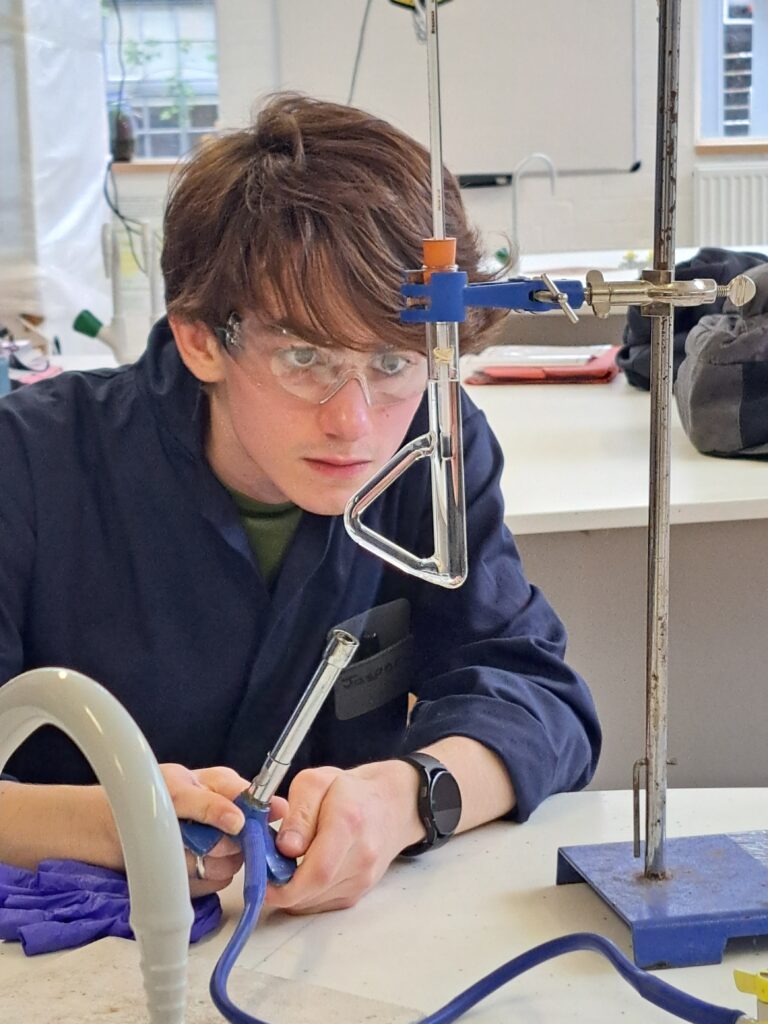
Chemistry
Exam board: Edexcel
A level Chemistry trains the mind to think clearly and rationally about any problem, not merely a science problem. Logic, objectivity and fairness are also qualities highly regarded by academics and employers alike; indeed Chemistry almost seems to be designed with these qualities in mind.
In recent years Chemistry has been a popular choice at A level and the modular course has proved attractive to Sixth Formers as well as delivering very good results. Looking ahead to higher education, a Chemistry A level is recommended for courses such as Environmental Science and Engineering, as well as the more obvious Chemistry, Biochemistry and related subjects. Chemistry at A level is essential if you wish to study courses in Medicine, Dentistry or Veterinary Science at university. The course is not modular and all the material covered will be examined at the end of the two year course.
Year 1 Topics
- Atomic Structure and the Periodic Table
- Bonding and Structure
- Redox
- Inorganic Chemistry and the Periodic Table
- Formulae, Equations and Amounts of Substance
- Bonding and Structure
- Formulae, Equations and Amounts of Substance
- Organic Chemistry
- Modern Analytical Techniques
- Energetics
- Kinetics
- Equilibrium
Year 2 Topics
- Atomic Structure and the Periodic Table
- Bonding and Structure
- Redox
- Inorganic Chemistry and the Periodic Table
- Formulae, Equations and Amounts of Substance
- Energetics
- Equilibrium
- Acid-base Equilibria
- Transition Metals
- Bonding and Structure
- Redox
- Formulae, Equations and Amounts of Substance
- Organic Chemistry
- Modern Analytical Techniques
- Kinetics I
- All topics across the full A level specification.
- Half of the paper will focus on testing students’ knowledge and understanding of practical skills and techniques.
There is no coursework but students will be expected to complete at least 12 core practicals. Questions in Paper 3 will assess practical techniques.
Assessment
- Paper 1: Advanced Inorganics and Physical Chemistry (30%)
One hour and 45 minutes. 90 marks. - Paper 2: Advanced Organics and Physical Chemistry (30%)
One hour and 45 minutes. 90 marks - Paper 3: General and Practical Principles in Chemistry (40%)
Two hours and 30 minutes. 120 marks
Entry requirements
Grade 7/7 in Double Award GCSE, or Grade 7 in GCSE Chemistry. Grade 7 in both GCSE Mathematics and English Language.
Head of Department: Philip Price

Art and Design
Exam board: OCR
Art and Design at A level will build on the experiences of students at GCSE.
Projects will be broadly theme-based with students encouraged to build up research across a range of ideas and disciplines. Increasing independence, initiative and ambition will be features of working at this level, as will a developing engagement with issues around the practice and theories of contemporary art and design.
Students will gain experience of the following in each year:
- Developing a body of independent imaginative work and ideas in 2 and 3 dimensions Group and individual work to long and short briefs
- Life drawing and experimental approaches to drawing
- Art workshops, gallery visits to commercial and public collections
- Discussion and practical-based work in a range of materials
- Bi-annual Year 12/13 foreign art trip (we have been to Eindhoven, Berlin, Paris, Rome and Venice in recent years)
- Mounting and hanging their own interim exhibitions throughout the course
- Working with a range of teachers trained in different disciplines
- Managing their own permanent studio space in Year 13
Assessment
- Unit 1: Portfolio (30%)
The portfolio is an exploratory investigation over the first year of the course in which students build a diverse and substantial folder of work. Work is based around two themes and the focus is on investigation skills and experimentation rather than resolved outcomes. Students will develop their own ideas through sketchbook exploration, and study the working practices and contexts of a range of related artists, designers and creative practitioners. They will be encouraged to be independent, inventive and bold, and to visit exhibitions to inform their work. - Unit 2: Critical and Contextual Study (30%)
The critical and contextual study is a written essay of 3000–3500 words with relevant illustrations. The focus of the study is an aspect of the visual arts of interest to the candidate. The title and subject of the critical and contextual study is expected to evolve through ideas generated by candidates during either the first or second year of the course. With guidance from the teacher, candidates develop their own focus and title for their individual study. Visits to exhibitions and museums will help students to narrow their focus. The Critical Study will be written during the second year of the course. - Unit 3: Project (40%) – Year 13
The project involves development of a sustained piece of studio practice culminating into a fully resolved piece or body of work. The ‘starting point’ for the Project is set by the Cambridge exam board and is given to students at the end of the first year. Students are encouraged to investigate and explore mediums and processes that inspire them, and to build a body of informed work that culminates in ambitious and individual resolutions. Project work will be exhibited at the end of the course.
Entry requirements
A Grade 7 at GCSE in an Art related course.
Head of Department: Will Lewer

Biology
Exam board: Edexcel Biology A (Salters – Nuffield)
This course has been designed to engage and inspire students by showing how an understanding of many contemporary issues requires a grasp of fundamental biological ideas.
The A level course in the first year of Sixth Form contains a well-balanced spread of topics including blood circulation and the heart, DNA and protein synthesis, enzymes, cell biology, evolution and biodiversity. Associated medical issues such as cardiovascular disease and cystic fibrosis are also explored. A level topics include forensic science, ecology, microorganisms, sport science, biochemistry, the nervous system and an introduction to how the brain works. The body’s response to infection is studied and the diseases which can result when the immune system fails to cope are investigated.
There is no coursework component within the course, however, students complete a series of core practicals that will be examined in their written exams. Students will undertake a residential field trip with The Field Studies Council (FSC) to cover the ecological sampling and successions aspects of the course.
The Biology Department is well resourced with up-to- date equipment such as a polymerase chain reaction thermocycler and gel electrophoresis.
Year 1
- Topic 1: Lifestyle, Health and Risk
- Topic 2: Genes and Health
- Topic 3: Voice of the Genome
- Topic 4: Biodiversity and Natural Resources
Year 2
- Topic 5: On the Wild Side
- Topic 6: Immunity, Infection and Forensics.
- Topic 7: Run for your Life
- Topic 8: Grey Matter.
Assessment
- Paper 1: The Natural Environment and Species Survival (33.33%)
Two hours. 100 marks. - Paper 2: Energy, Exercise and Co-ordination (33.33%)
Two hours. 100 marks. - Paper 3: General and Practical Applications in Biology (33.33%)
Two hours. 100 marks.
Entry requirements
Grade 7/7 in Double Science or Grade 7 in GCSE Biology. Grade 7 in GCSE English Language and Mathematics.
Head of Department: Philip Price

Chemistry
Exam board: Edexcel
A level Chemistry trains the mind to think clearly and rationally about any problem, not merely a science problem. Logic, objectivity and fairness are also qualities highly regarded by academics and employers alike; indeed Chemistry almost seems to be designed with these qualities in mind.
In recent years Chemistry has been a popular choice at A level and the modular course has proved attractive to Sixth Formers as well as delivering very good results. Looking ahead to higher education, a Chemistry A level is recommended for courses such as Environmental Science and Engineering, as well as the more obvious Chemistry, Biochemistry and related subjects. Chemistry at A level is essential if you wish to study courses in Medicine, Dentistry or Veterinary Science at university. The course is not modular and all the material covered will be examined at the end of the two year course.
Year 1 Topics
- Atomic Structure and the Periodic Table
- Bonding and Structure
- Redox
- Inorganic Chemistry and the Periodic Table
- Formulae, Equations and Amounts of Substance
- Bonding and Structure
- Formulae, Equations and Amounts of Substance
- Organic Chemistry
- Modern Analytical Techniques
- Energetics
- Kinetics
- Equilibrium
Year 2 Topics
- Atomic Structure and the Periodic Table
- Bonding and Structure
- Redox
- Inorganic Chemistry and the Periodic Table
- Formulae, Equations and Amounts of Substance
- Energetics
- Equilibrium
- Acid-base Equilibria
- Transition Metals
- Bonding and Structure
- Redox
- Formulae, Equations and Amounts of Substance
- Organic Chemistry
- Modern Analytical Techniques
- Kinetics I
- All topics across the full A level specification.
- Half of the paper will focus on testing students’ knowledge and understanding of practical skills and techniques.
There is no coursework but students will be expected to complete at least 12 core practicals. Questions in Paper 3 will assess practical techniques.
Assessment
- Paper 1: Advanced Inorganics and Physical Chemistry (30%)
One hour and 45 minutes. 90 marks. - Paper 2: Advanced Organics and Physical Chemistry (30%)
One hour and 45 minutes. 90 marks - Paper 3: General and Practical Principles in Chemistry (40%)
Two hours and 30 minutes. 120 marks
Entry requirements
Grade 7/7 in Double Award GCSE, or Grade 7 in GCSE Chemistry. Grade 7 in both GCSE Mathematics and English Language.
Head of Department: Philip Price
Classical Civilisation
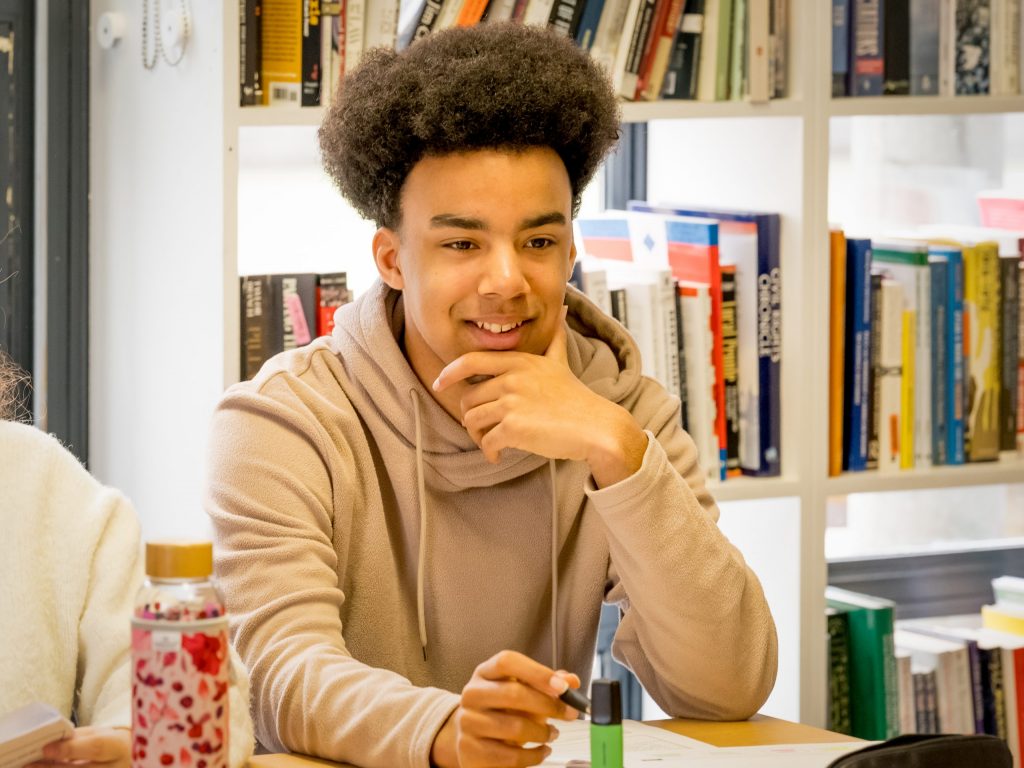
Classical Civilisation
Exam board: OCR
A knowledge of the civilisations of Greece and Rome is fundamental to an understanding of our own. The new A level syllabus offers an integrated study of literature, art, history, culture and philosophy in the ancient Mediterranean world. No previous knowledge of the subject is needed at all, although if you already have GCSE Classical Civilisation you will enjoy deepening and broadening your understanding.
A typical lesson will involve reading or studying a primary source (an extract from a Greek poem or an image of a Roman sculpture, for example), followed by a teacher-led discussion. Often we will turn the spotlight back from the ancient world onto our own world to reassess the nature of our modern societies and values.
An A level in Classical Civilisation provides an excellent basis for a range of degrees from Art to Philosophy. The subject can also be continued at university on its own or in combination with others. A Classics degree will require the study of Latin and/or ancient Greek, but the languages are not an entry requirement in most cases. Classical Civilisation degrees do not require language study, and there are also options such as Ancient & Modern History, Archaeology & Anthropology, Classics & English, Classics & Oriental Studies, and Classics and Modern Languages. Well-known public figures who have found the study of Classics a valuable training before going to high achievement in other fields include: JK Rowling (best-selling author of the Harry Potter series), Tom Hiddleston (Actor), Susan Greenfield (who presented the series Brain Story on BBC2), Sir Anthony Cleaver (ex-Chairman of IBM, Head of UK Atomic Energy Authority), and Sir Jeremy Morse (ex-Chairman, Lloyds Bank).
Assessment
At the end of two years you will sit three papers and exam questions test a balanced combination of factual knowledge and evaluative skills, both historical and literary.
- Paper 1: The World of the Hero
This is a compulsory paper consisting of an in-depth study of either Homer’s Iliad or Homer’s Odyssey and Virgil’s Aeneid. At KAS we study the Iliad. These Epic poems are studied in translation. - Paper 2: Culture & the Arts
You can study one of the following options: Greek Theatre; Imperial Image; Invention of the Barbarian; Greek Art. All of these topics involve the study of visual and material culture and all but Greek Art include the study of literature in translation. At KAS, the current choice is The Invention of the Barbarian, which looks at the Greeks and their attitude to ‘others’, especially the Persians. This exciting course offers the chance to learn something about the Persian empire as well as about the Greeks. - Paper 3: Beliefs & Ideas
We study one of the following options: Greek Religion; Love and Relationships; Politics and the Late Republic; Democracy and the Athenians, depending on students’ interests. These topics involve the study of an area of classical thought, in combination with the study of literature in translation or visual/ material culture.
Entry requirements
Grade 6 or equivalent in English, History, Classical Civilisation, Religious Studies or similar at GCSE.
Extra information
This year the Classics department visited Greece and we are hoping to make further visits abroad. In addition, we enjoy visits to museums and the theatre.
Head of Department: Judith Rice
Computer Science

Computer Science
Exam board: OCR
A level Computer Science introduces students to a practical and relevant approach to the changing world of Computing. Combined with academic principles, the course is intensely creative combining invention, innovation and excitement enabling learners to develop:
- An understanding and ability to apply the fundamental principles and concepts of computer science, including: abstraction, decomposition, logic, algorithms and data representation.
- The ability to analyse problems in computational terms through practical experience of solving such problems, including writing programs to do so.
- The capacity to think creatively, innovatively, analytically, logically and critically.
- The capacity to see relationships between different aspects of computer science.
- Mathematical skills.
- The ability to articulate (moral), social (ethical), legal and cultural opportunities and risks of digital technology.
In addition to lessons, students will be required to work independently in order to understand the theory material for the two examinations which they will complete in Year 13. Students will also be expected to develop an understanding of programming in order to prepare for the non-examination programming coursework unit. Skills will also be developed in solving problems, designing systems and understand the power and limits of human and machine intelligence, preparing them to go on to study Computer Science at a higher level.
Assessment
- Component 1: Computer Systems (40%)
- One paper
- 1.1: Characteristics of contemporary processors, input, output and storage devices
- 1.2: Software and software development
- 1.3: Exchanging data
- 1.4: Data types, data structures and algorithms
- 1.5: Legal, moral, cultural and ethical issues
- Component 2: Elements of computational thinking (40%)
- One paper
- 2.1: Elements of computational thinking
- 2.2: Problem solving and programming
- 2.3: Algorithms
- Component 3 or 4: Programming project (20%)
- Non-exam assessment (coursework)
- 3.1: Analysis of the problem
- 3.2: Design of the solution
- 3.3: Developing the solution
- 3.4: Evaluation
Entry requirements
In line with KAS A level entry requirements.
Extra information
You’ll have opportunities to see computing outside of the classroom during visits and conferences at Imperial. We also take part in the Information Olympiad and The Bebras Challenges.
Head of Department: Raj Bhalsod
Critical and Contextual Studies in Art and Design
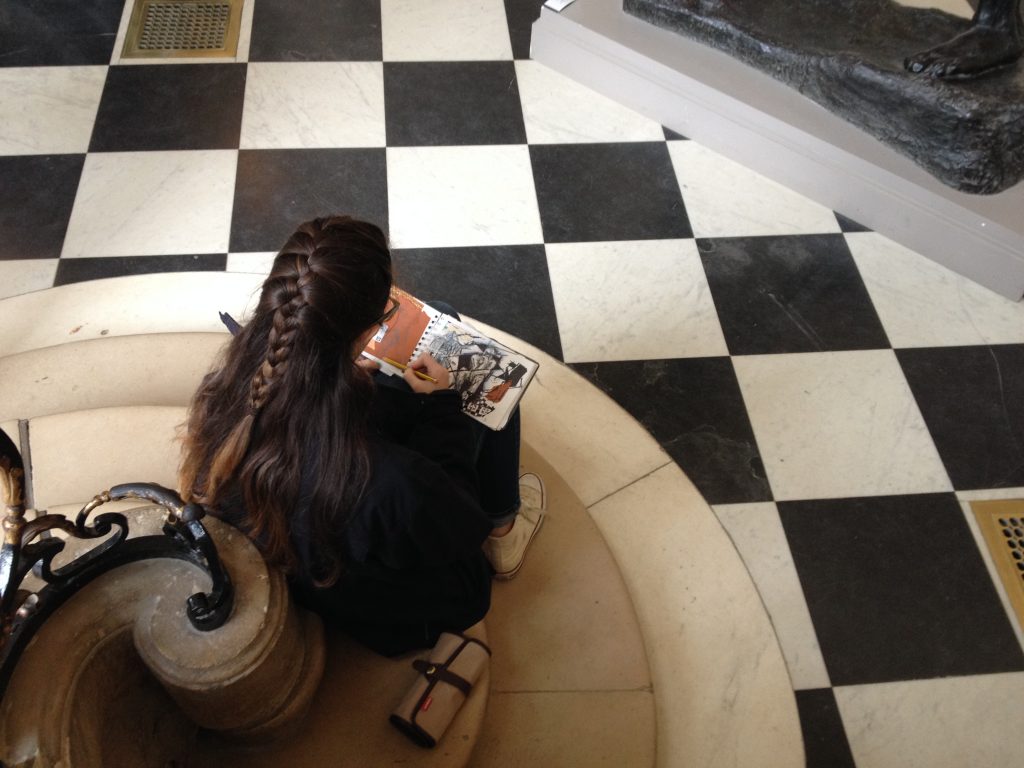
Critical and Contextual Studies in Art and Design
Exam board: OCR
This is a course that will address the major challenges that face our society today. It will explore the way that art, architecture, fashion, photography, graphic design have both shaped and helped us understand the issues of the day.
This is a personal and political course that critically engages with art and its vital role in providing a critique of our society.
- You will use a work journal to record ideas and a folder for practice- based work.
- You will curate exhibitions and study how artists, writers and galleries communicate ideas to a public.
- You will visit galleries and learn how to make sense of them and develop a language to address their approaches.
- You will be encouraged to visit galleries and exhibitions and to base your learning around responses to primary recording.
- You will lead and model your enquiries around your own individual interests. It is both written and visual.
Assessment
- Unit 1: The Personal investigation (60%)
Students build a portfolio of investigatory work which explores the context in which art, design and architecture is made, the cultural pressures and influences which shape it and in which it exists. The portfolio will explore ideas around chosen themes, such as the human figure in art, representations of women in art, architecture and the built environment. Students will be able to shape their investigations around their individual interests. Research will take the form of sketchbook-based enquiry, balancing written and visual materials. Formal and visual analysis lie at the heart of understanding art work. Students will develop skills in extended written analysis accompanied by relevant visual research. Comparative analysis in the differentiation between styles, genres, subject matter and historical cultures allied to an understanding of practical techniques and materials and how they affect meaning.
- The External Assignment (40%)
This is a timed project over six to eight weeks in which students respond to one of a number of starting points set by the board, and make a personal investigation culminating in an exhibition of their work and ideas.
Entry requirements
Students may have studied art at GCSE, but this is by no means an obligation. On this course there are opportunities for both the more academic student and the more practical art-based student.
We would expect students to have a achieved a Grade 7 in either English, Art, History or Photography GCSE.
Head of department: Will Lewer

Classical Civilisation
Exam board: OCR
A knowledge of the civilisations of Greece and Rome is fundamental to an understanding of our own. The new A level syllabus offers an integrated study of literature, art, history, culture and philosophy in the ancient Mediterranean world. No previous knowledge of the subject is needed at all, although if you already have GCSE Classical Civilisation you will enjoy deepening and broadening your understanding.
A typical lesson will involve reading or studying a primary source (an extract from a Greek poem or an image of a Roman sculpture, for example), followed by a teacher-led discussion. Often we will turn the spotlight back from the ancient world onto our own world to reassess the nature of our modern societies and values.
An A level in Classical Civilisation provides an excellent basis for a range of degrees from Art to Philosophy. The subject can also be continued at university on its own or in combination with others. A Classics degree will require the study of Latin and/or ancient Greek, but the languages are not an entry requirement in most cases. Classical Civilisation degrees do not require language study, and there are also options such as Ancient & Modern History, Archaeology & Anthropology, Classics & English, Classics & Oriental Studies, and Classics and Modern Languages. Well-known public figures who have found the study of Classics a valuable training before going to high achievement in other fields include: JK Rowling (best-selling author of the Harry Potter series), Tom Hiddleston (Actor), Susan Greenfield (who presented the series Brain Story on BBC2), Sir Anthony Cleaver (ex-Chairman of IBM, Head of UK Atomic Energy Authority), and Sir Jeremy Morse (ex-Chairman, Lloyds Bank).
Assessment
At the end of two years you will sit three papers and exam questions test a balanced combination of factual knowledge and evaluative skills, both historical and literary.
- Paper 1: The World of the Hero
This is a compulsory paper consisting of an in-depth study of either Homer’s Iliad or Homer’s Odyssey and Virgil’s Aeneid. At KAS we study the Iliad. These Epic poems are studied in translation. - Paper 2: Culture & the Arts
You can study one of the following options: Greek Theatre; Imperial Image; Invention of the Barbarian; Greek Art. All of these topics involve the study of visual and material culture and all but Greek Art include the study of literature in translation. At KAS, the current choice is The Invention of the Barbarian, which looks at the Greeks and their attitude to ‘others’, especially the Persians. This exciting course offers the chance to learn something about the Persian empire as well as about the Greeks. - Paper 3: Beliefs & Ideas
We study one of the following options: Greek Religion; Love and Relationships; Politics and the Late Republic; Democracy and the Athenians, depending on students’ interests. These topics involve the study of an area of classical thought, in combination with the study of literature in translation or visual/ material culture.
Entry requirements
Grade 6 or equivalent in English, History, Classical Civilisation, Religious Studies or similar at GCSE.
Extra information
This year the Classics department visited Greece and we are hoping to make further visits abroad. In addition, we enjoy visits to museums and the theatre.
Head of Department: Judith Rice

Computer Science
Exam board: OCR
A level Computer Science introduces students to a practical and relevant approach to the changing world of Computing. Combined with academic principles, the course is intensely creative combining invention, innovation and excitement enabling learners to develop:
- An understanding and ability to apply the fundamental principles and concepts of computer science, including: abstraction, decomposition, logic, algorithms and data representation.
- The ability to analyse problems in computational terms through practical experience of solving such problems, including writing programs to do so.
- The capacity to think creatively, innovatively, analytically, logically and critically.
- The capacity to see relationships between different aspects of computer science.
- Mathematical skills.
- The ability to articulate (moral), social (ethical), legal and cultural opportunities and risks of digital technology.
In addition to lessons, students will be required to work independently in order to understand the theory material for the two examinations which they will complete in Year 13. Students will also be expected to develop an understanding of programming in order to prepare for the non-examination programming coursework unit. Skills will also be developed in solving problems, designing systems and understand the power and limits of human and machine intelligence, preparing them to go on to study Computer Science at a higher level.
Assessment
- Component 1: Computer Systems (40%)
- One paper
- 1.1: Characteristics of contemporary processors, input, output and storage devices
- 1.2: Software and software development
- 1.3: Exchanging data
- 1.4: Data types, data structures and algorithms
- 1.5: Legal, moral, cultural and ethical issues
- Component 2: Elements of computational thinking (40%)
- One paper
- 2.1: Elements of computational thinking
- 2.2: Problem solving and programming
- 2.3: Algorithms
- Component 3 or 4: Programming project (20%)
- Non-exam assessment (coursework)
- 3.1: Analysis of the problem
- 3.2: Design of the solution
- 3.3: Developing the solution
- 3.4: Evaluation
Entry requirements
In line with KAS A level entry requirements.
Extra information
You’ll have opportunities to see computing outside of the classroom during visits and conferences at Imperial. We also take part in the Information Olympiad and The Bebras Challenges.
Head of Department: Raj Bhalsod

Critical and Contextual Studies in Art and Design
Exam board: OCR
This is a course that will address the major challenges that face our society today. It will explore the way that art, architecture, fashion, photography, graphic design have both shaped and helped us understand the issues of the day.
This is a personal and political course that critically engages with art and its vital role in providing a critique of our society.
- You will use a work journal to record ideas and a folder for practice- based work.
- You will curate exhibitions and study how artists, writers and galleries communicate ideas to a public.
- You will visit galleries and learn how to make sense of them and develop a language to address their approaches.
- You will be encouraged to visit galleries and exhibitions and to base your learning around responses to primary recording.
- You will lead and model your enquiries around your own individual interests. It is both written and visual.
Assessment
- Unit 1: The Personal investigation (60%)
Students build a portfolio of investigatory work which explores the context in which art, design and architecture is made, the cultural pressures and influences which shape it and in which it exists. The portfolio will explore ideas around chosen themes, such as the human figure in art, representations of women in art, architecture and the built environment. Students will be able to shape their investigations around their individual interests. Research will take the form of sketchbook-based enquiry, balancing written and visual materials. Formal and visual analysis lie at the heart of understanding art work. Students will develop skills in extended written analysis accompanied by relevant visual research. Comparative analysis in the differentiation between styles, genres, subject matter and historical cultures allied to an understanding of practical techniques and materials and how they affect meaning.
- The External Assignment (40%)
This is a timed project over six to eight weeks in which students respond to one of a number of starting points set by the board, and make a personal investigation culminating in an exhibition of their work and ideas.
Entry requirements
Students may have studied art at GCSE, but this is by no means an obligation. On this course there are opportunities for both the more academic student and the more practical art-based student.
We would expect students to have a achieved a Grade 7 in either English, Art, History or Photography GCSE.
Head of department: Will Lewer
Economics
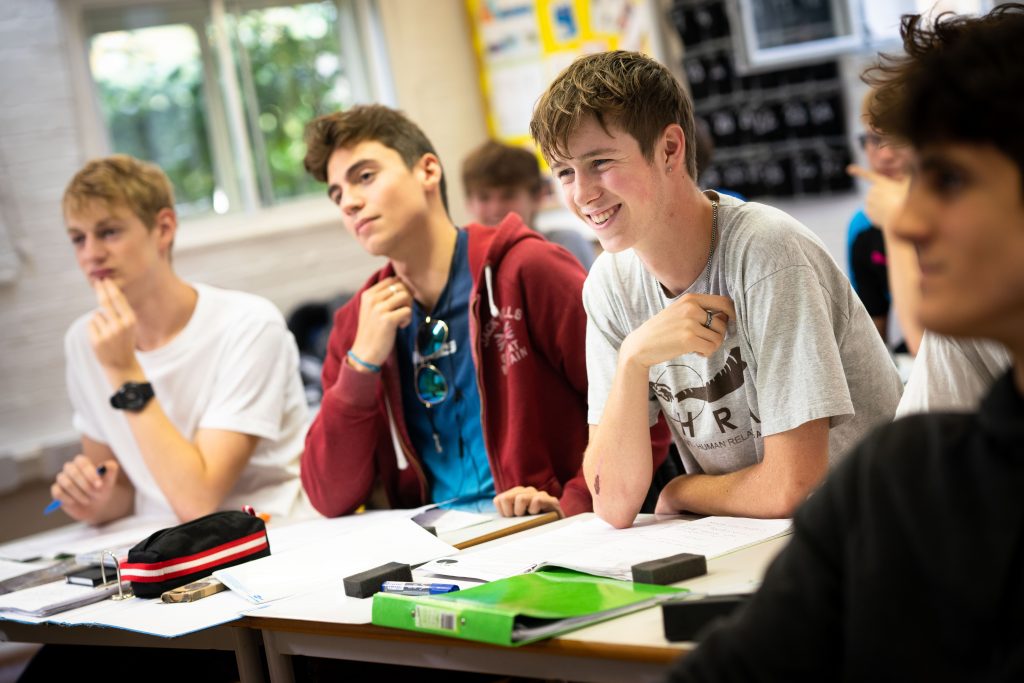
Economics
Exam board: Edexcel
Economics looks at the question of how to allocate resources optimally both from an individual’s point of view (Microeconomics) and also from the perspective of society as a whole (Macroeconomics). At its root lie moral questions about how we want to live our lives both as individuals and as a social unit. Based upon a number of assumptions on these issues Economics builds a conceptual structure that allows us to explain how resources are allocated in the world today. Once you understand this conceptual structure you can then use it as a framework to assess the limitations of how society works and explore ways to improve it.
Economics is not all about money! The study of economics helps you to understand various aspects of finance but Economics is primarily about choice, scarcity, opportunity and the impact of decision making on our lives. You may be asked to think about questions as diverse as “Why do we have a sugar tax and is it fair?”, “Should those who are unemployed receive benefits?” and “Is the UK better off outside of the EU?” Economics offers a way of thinking about the world that enables us to make the best of what we have both as individuals and as society as a whole.
In order to be able to enjoy studying Economics you need to be able to construct logical arguments from many different perspectives. Whilst the Maths component of the specification is not onerous you will need to be fluent with interpreting data in graphical form and with the concepts of ratio, percentage and index numbers. Classroom discussions will be based on a wider reading list that you will need to go through independently.
This is a challenging two-year linear course that is examined synoptically at the end. It gives you the opportunity to gain a deeper understanding of the subject whilst developing your study skills to prepare you for university life. Consequently it has a higher UCAS tariff than the modular A level courses that are currently offered by the various exam boards.
Assessment
The two-year linear course has three papers:
- Paper 1: Markets and business behaviour – 35%
Multiple choice (20) and data response (60) - Paper 2: The national and global economy – 35%
Multiple choice (20) and data response (60) - Paper 3: Microeconomics and macroeconomics – 30%
Two data responses (50 and 50)
Entry requirements
Grades of 6 or above at GCSE in Maths and English/History.
Head of department: Victoria Gibson
English Literature
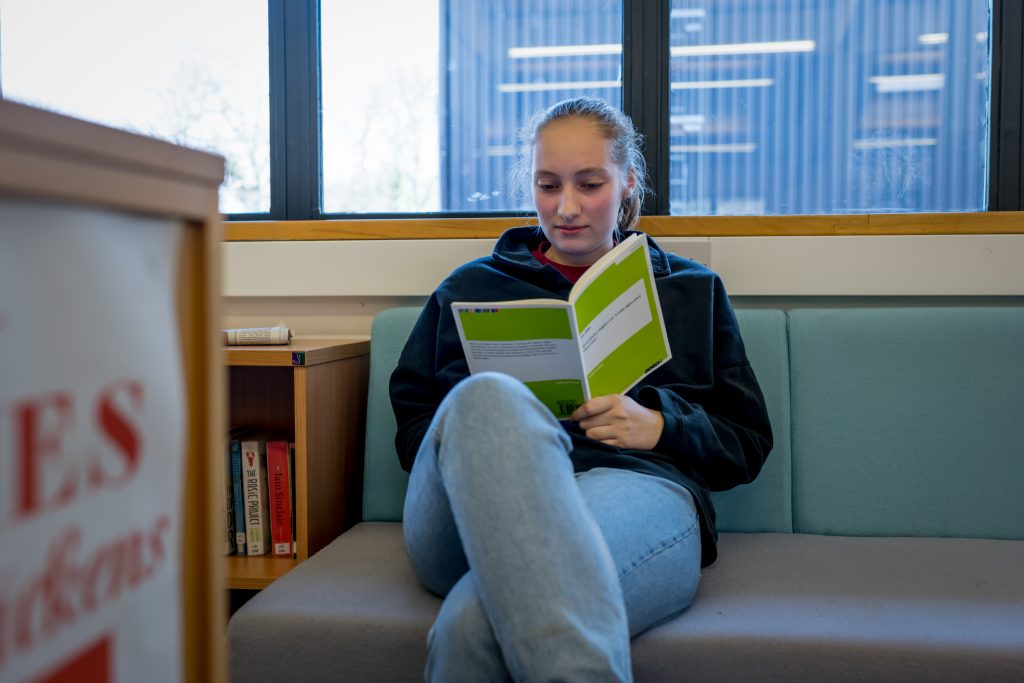
English Literature
Exam board: OCR
The idea that reading for pleasure is one of the keenest enjoyments in life is central to our teaching. We believe that creating an atmosphere in which reading is a joy allows students to develop in confidence as thinkers about literature, rather than simply consumers. Our classes are discursive and we encourage both lively debate and self-reflection.
The OCR A level qualification allows learners to:
- Read widely and independently, both set texts and others that they have selected for themselves;
- Engage critically and creatively with a substantial body of texts and ways of responding to them;
- Develop and effectively apply their knowledge of literary analysis and evaluation in writing;
- Explore the contexts of the texts they are reading and others’ interpretations.
Assessment
- Component 1: Drama and Poetry pre-1900 (40%)
- Written exam paper of 2 hours & 30 minutes
- Closed text
- Three texts are studied; options include:
| Shakespeare | Coriolanus |
| Hamlet | |
| Measure for Measure | |
| Richard III | |
| The Tempest | |
| Twelfth Night | |
| Drama | Edward II – Marlowe |
| The Duchess of Malfi – Webster | |
| She Stoops to Conquer – Goldsmith | |
| A Doll’s House – Ibsen | |
| An Ideal Husband – Wilde | |
| Poetry | The Merchant’s Prologue and Tale – Chaucer |
| Paradise Lost Books 9 & 10 – Milton | |
| Selected Poems – Coleridge | |
| Maud – Tennyson | |
| Selected Poems – Christina Rossetti |
- Component 2: Comparative and Contextual Study (40%)
- Written exam paper of 2 hours & 30 minutes
- Closed text
- Learners choose one topic area and study two whole texts:
- American Literature 1880–1940
- The Gothic
- Dystopia
- Women in Literature
- The Immigrant Experience
Text choices include:
| American Literature 1880-1940 | The Great Gatsby – Fitzgerald |
| The Grapes of Wrath – Steinbeck | |
| The Age of Innocence – Wharton | |
| The Gothic | Dracula – Stoker |
| The Bloody Chamber and Other Stories – Carter | |
| Frankenstein – Shelley | |
| Dystopia | The Handmaid’s Tale – Atwood |
| 1984 – Orwell | |
| Brave New World – Huxley | |
| Women in Literature | Sense and Sensibility – Austen |
| Mrs Dalloway – Woolf | |
| The Bell Jar – Plath | |
| The Immigrant Experience | The Reluctant Fundamentalist – Hamid |
| Call It Sleep – Roth | |
| Brick Lane – Ali |
- Component 3: Literature post-1900 (20%)
- Coursework (3,000 words)
- Two tasks with a choice of close reading critical analysis OR re-creative writing with commentary and a comparative essay
Entry requirements
Grade 7 in GCSE English Literature and GCSE English Language or equivalent. An enthusiasm for reading and a curiosity about the world are essential.
Co-heads of department: Alex Marrion and Zoe Rawlings
Film Studies
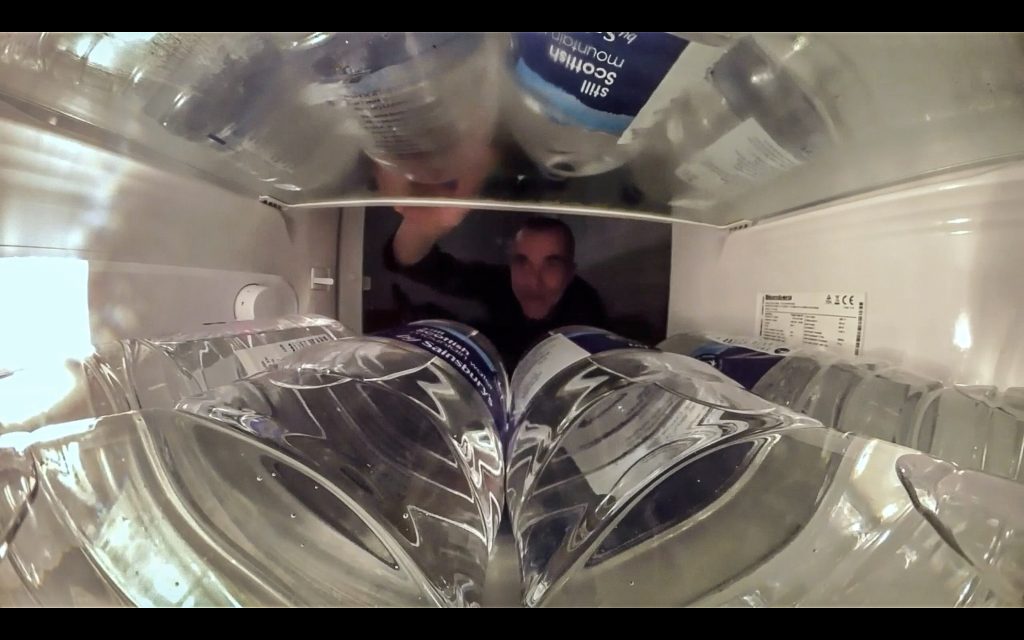
Film Studies
Exam board: OCR
The new, linear OCR Film Studies A level course involves the detailed analysis of the forms and conventions of film. It combines practical production in conjunction with written, theoretical examinations. Any required technical skills will be taught in Year 12, including the use of digital DSLRs, camcorders and Final Cut Pro X.
Students are encouraged to watch and analyse all forms of film – including British independent, short films, European experimental film, documentary and Hollywood blockbusters – to gain a thorough understanding of film conventions and industry practices. Students develop their own understanding of the film industry through independent study, and it is recommended that they view films beyond the set film list, as well as keep abreast of industry developments through online features, film magazines, TV and radio podcast dedicated to the business of film. They will also take part in workshops and screenings at the British Film Institute and our own Phoenix Theatre. Students will develop their own practical skills to the point at which they are able to make independent decisions about research and planning, production and post production.
Year 1
- Studying Film – exploring film history through micro elements, such as cinematography, editing and sound. Film choices include 2001: A Space Odyssey and The General.
- Contemporary US and UK film industries – looking at film as text, covering elements of narrative, genre and representation in films like Star Wars: The Force Awakens and Ex-Machina.
- Practical – short filmmaking – students make either a four to five minute short film from script to screen, or a 10-page screenplay with photographed plans and storyboards. Students watch a selection of eight short films, which should inspire them in terms of camera, mise en scene, narrative and representation. All practical work is produced individually by each student, though they are encouraged to put together a crew to assist on shooting days.
Year 2
- European Cinema – part of the Film History examination, this unit explores film movements like German Expressionism as well as the experimental nature of film, from Nosferatu to L’Age D’Or.
- Documentary Film – filmmaking, theory and critical debates on naturalism and narrative. Film choices include Searching for Sugar Man and Man on Wire.
- Ideology across three films – a theme-based unit, which explores films from an ideological perspective. For example, themes of family and home will be compared across Moonrise Kingdom, A Separation and Room.
Assessment
Written examinations account for 70% of the overall qualification, so students must possess very good analytical and literacy skills. There are three assessments in total:
- Film history. This is a two hour exam with a weighting of 35%.
- Critical approaches to film. This is a two hour exam including synoptic assessment with a weighting of 35%.
- Making a short film. This is a non-exam assessment with a weighting of 30%.
Entry requirements
Grade 6 in English and at least one other art or humanities subject.
Extra information
At KAS students can expect to attend several different days at the British Film Institute where there are short film courses and competitions we encourage you to enter. We go on cinema visits as well as putting on our own screenings.
Head of department: Nuray Jemil

Economics
Exam board: Edexcel
Economics looks at the question of how to allocate resources optimally both from an individual’s point of view (Microeconomics) and also from the perspective of society as a whole (Macroeconomics). At its root lie moral questions about how we want to live our lives both as individuals and as a social unit. Based upon a number of assumptions on these issues Economics builds a conceptual structure that allows us to explain how resources are allocated in the world today. Once you understand this conceptual structure you can then use it as a framework to assess the limitations of how society works and explore ways to improve it.
Economics is not all about money! The study of economics helps you to understand various aspects of finance but Economics is primarily about choice, scarcity, opportunity and the impact of decision making on our lives. You may be asked to think about questions as diverse as “Why do we have a sugar tax and is it fair?”, “Should those who are unemployed receive benefits?” and “Is the UK better off outside of the EU?” Economics offers a way of thinking about the world that enables us to make the best of what we have both as individuals and as society as a whole.
In order to be able to enjoy studying Economics you need to be able to construct logical arguments from many different perspectives. Whilst the Maths component of the specification is not onerous you will need to be fluent with interpreting data in graphical form and with the concepts of ratio, percentage and index numbers. Classroom discussions will be based on a wider reading list that you will need to go through independently.
This is a challenging two-year linear course that is examined synoptically at the end. It gives you the opportunity to gain a deeper understanding of the subject whilst developing your study skills to prepare you for university life. Consequently it has a higher UCAS tariff than the modular A level courses that are currently offered by the various exam boards.
Assessment
The two-year linear course has three papers:
- Paper 1: Markets and business behaviour – 35%
Multiple choice (20) and data response (60) - Paper 2: The national and global economy – 35%
Multiple choice (20) and data response (60) - Paper 3: Microeconomics and macroeconomics – 30%
Two data responses (50 and 50)
Entry requirements
Grades of 6 or above at GCSE in Maths and English/History.
Head of department: Victoria Gibson

English Literature
Exam board: OCR
The idea that reading for pleasure is one of the keenest enjoyments in life is central to our teaching. We believe that creating an atmosphere in which reading is a joy allows students to develop in confidence as thinkers about literature, rather than simply consumers. Our classes are discursive and we encourage both lively debate and self-reflection.
The OCR A level qualification allows learners to:
- Read widely and independently, both set texts and others that they have selected for themselves;
- Engage critically and creatively with a substantial body of texts and ways of responding to them;
- Develop and effectively apply their knowledge of literary analysis and evaluation in writing;
- Explore the contexts of the texts they are reading and others’ interpretations.
Assessment
- Component 1: Drama and Poetry pre-1900 (40%)
- Written exam paper of 2 hours & 30 minutes
- Closed text
- Three texts are studied; options include:
| Shakespeare | Coriolanus |
| Hamlet | |
| Measure for Measure | |
| Richard III | |
| The Tempest | |
| Twelfth Night | |
| Drama | Edward II – Marlowe |
| The Duchess of Malfi – Webster | |
| She Stoops to Conquer – Goldsmith | |
| A Doll’s House – Ibsen | |
| An Ideal Husband – Wilde | |
| Poetry | The Merchant’s Prologue and Tale – Chaucer |
| Paradise Lost Books 9 & 10 – Milton | |
| Selected Poems – Coleridge | |
| Maud – Tennyson | |
| Selected Poems – Christina Rossetti |
- Component 2: Comparative and Contextual Study (40%)
- Written exam paper of 2 hours & 30 minutes
- Closed text
- Learners choose one topic area and study two whole texts:
- American Literature 1880–1940
- The Gothic
- Dystopia
- Women in Literature
- The Immigrant Experience
Text choices include:
| American Literature 1880-1940 | The Great Gatsby – Fitzgerald |
| The Grapes of Wrath – Steinbeck | |
| The Age of Innocence – Wharton | |
| The Gothic | Dracula – Stoker |
| The Bloody Chamber and Other Stories – Carter | |
| Frankenstein – Shelley | |
| Dystopia | The Handmaid’s Tale – Atwood |
| 1984 – Orwell | |
| Brave New World – Huxley | |
| Women in Literature | Sense and Sensibility – Austen |
| Mrs Dalloway – Woolf | |
| The Bell Jar – Plath | |
| The Immigrant Experience | The Reluctant Fundamentalist – Hamid |
| Call It Sleep – Roth | |
| Brick Lane – Ali |
- Component 3: Literature post-1900 (20%)
- Coursework (3,000 words)
- Two tasks with a choice of close reading critical analysis OR re-creative writing with commentary and a comparative essay
Entry requirements
Grade 7 in GCSE English Literature and GCSE English Language or equivalent. An enthusiasm for reading and a curiosity about the world are essential.
Co-heads of department: Alex Marrion and Zoe Rawlings

Film Studies
Exam board: OCR
The new, linear OCR Film Studies A level course involves the detailed analysis of the forms and conventions of film. It combines practical production in conjunction with written, theoretical examinations. Any required technical skills will be taught in Year 12, including the use of digital DSLRs, camcorders and Final Cut Pro X.
Students are encouraged to watch and analyse all forms of film – including British independent, short films, European experimental film, documentary and Hollywood blockbusters – to gain a thorough understanding of film conventions and industry practices. Students develop their own understanding of the film industry through independent study, and it is recommended that they view films beyond the set film list, as well as keep abreast of industry developments through online features, film magazines, TV and radio podcast dedicated to the business of film. They will also take part in workshops and screenings at the British Film Institute and our own Phoenix Theatre. Students will develop their own practical skills to the point at which they are able to make independent decisions about research and planning, production and post production.
Year 1
- Studying Film – exploring film history through micro elements, such as cinematography, editing and sound. Film choices include 2001: A Space Odyssey and The General.
- Contemporary US and UK film industries – looking at film as text, covering elements of narrative, genre and representation in films like Star Wars: The Force Awakens and Ex-Machina.
- Practical – short filmmaking – students make either a four to five minute short film from script to screen, or a 10-page screenplay with photographed plans and storyboards. Students watch a selection of eight short films, which should inspire them in terms of camera, mise en scene, narrative and representation. All practical work is produced individually by each student, though they are encouraged to put together a crew to assist on shooting days.
Year 2
- European Cinema – part of the Film History examination, this unit explores film movements like German Expressionism as well as the experimental nature of film, from Nosferatu to L’Age D’Or.
- Documentary Film – filmmaking, theory and critical debates on naturalism and narrative. Film choices include Searching for Sugar Man and Man on Wire.
- Ideology across three films – a theme-based unit, which explores films from an ideological perspective. For example, themes of family and home will be compared across Moonrise Kingdom, A Separation and Room.
Assessment
Written examinations account for 70% of the overall qualification, so students must possess very good analytical and literacy skills. There are three assessments in total:
- Film history. This is a two hour exam with a weighting of 35%.
- Critical approaches to film. This is a two hour exam including synoptic assessment with a weighting of 35%.
- Making a short film. This is a non-exam assessment with a weighting of 30%.
Entry requirements
Grade 6 in English and at least one other art or humanities subject.
Extra information
At KAS students can expect to attend several different days at the British Film Institute where there are short film courses and competitions we encourage you to enter. We go on cinema visits as well as putting on our own screenings.
Head of department: Nuray Jemil
French
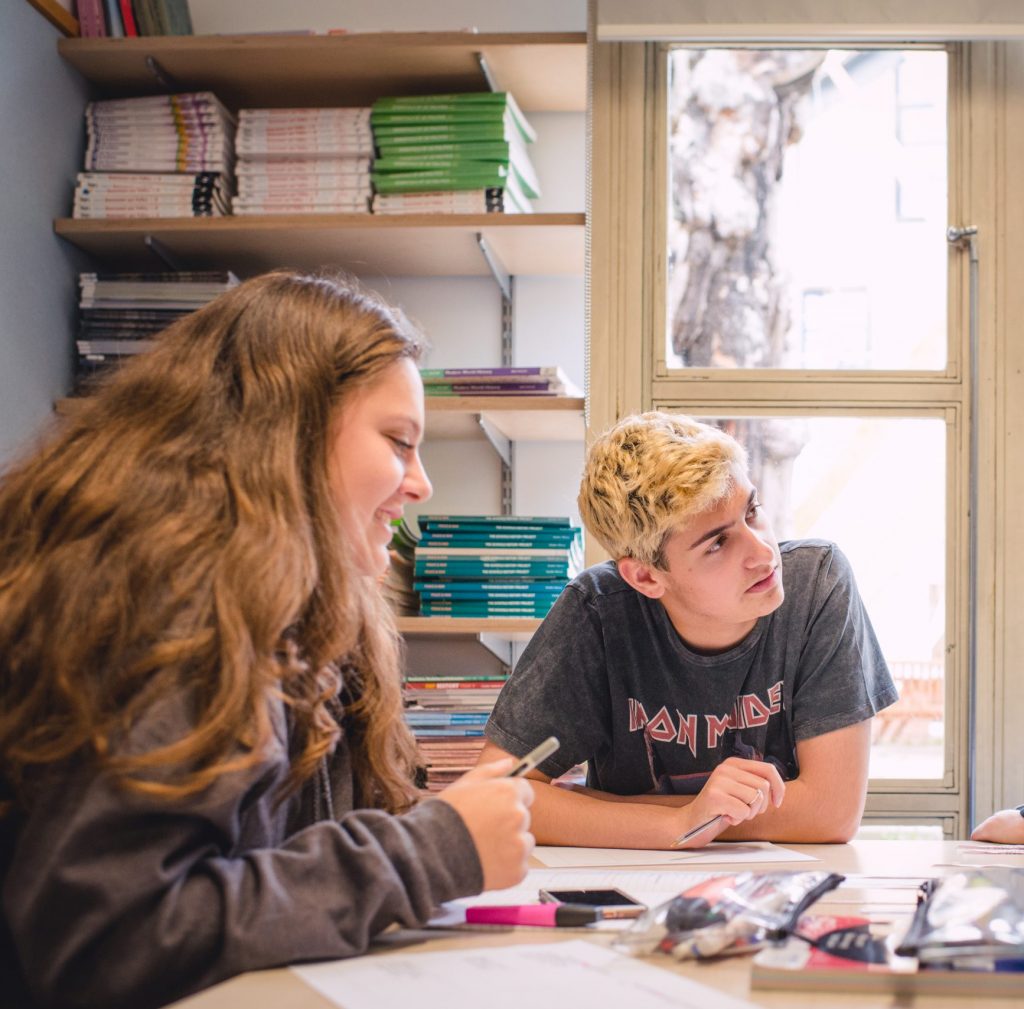
French
Exam board: AQA
Students at KAS follow the AQA French A level syllabus. The course provides stimulating content to enable students to develop their linguistic skills alongside their understanding of the culture and society of countries where French is spoken.
Students study technological and social change, looking at diversity and the benefits it brings. They will study highlights of French-speaking artistic culture, including francophone music and cinema, and learn about political engagement and who wields political power in the French-speaking world. Students also explore the influence of the past on present-day French-speaking communities. Throughout their studies, they will learn the language in the context of French-speaking countries and the issues in which have shaped them. Students will study texts and have the opportunity to carry out independent research on an area of their choice.
Films from French-speaking directors and literature from French authors form part of the teaching content, and are studied either as extracts or as whole pieces over the two-year course.
In the first year, students will develop their reading, writing, listening, translating and speaking skills over the following topics: changing family structures, cyber-society; volunteering; cultural heritage and French contemporary music. A film will also be studied in depth.
In the second year, topics include multiculturalism, the socially marginalised, criminality, the vote, social protest and immigration. A piece of literature will be studied in depth, and students get to do some individual research for a presentation as part of the oral examination.
Students also benefit from speaking sessions with a language assistant.
We provide an enriching experience in French, so our teaching extends beyond the classroom. A trip is organised annually to Lyon, to which students are actively encouraged to take part. We also run a French debating club every fortnight, which has a huge impact on students’ speaking confidence and fluency. Finally, a French Drama Festival takes place at KAS every year; this is mainly designed for A level students and enables them to explore their acting skills in a foreign language whilst competing against 15 other schools.
Assessment
- Paper 1: Listening, reading and writing (50%)
- Two hours & 30 minutes
- Paper 2: Writing (20%)
- two hours
- Paper 3: Speaking (30%)
- 21-23 minutes
Entry requirements
Grades 7-9 in French GCSE are needed to be able to access the syllabus confidently.
Extra information
Each year we host the French Theatre Festival here at King Alfred School and all students are encouraged to enter. One of the highlights for most students is the annual language and cultural enrichment trip to Lyon. In addition to these students are given the opportunity to participate in:
- Outings to A level French conferences
- Outings to the BFI for student conferences regarding French film
- Theatre performances in French in London (depending on what is currently showing)
Head of department: Camilla Parsons
Geography
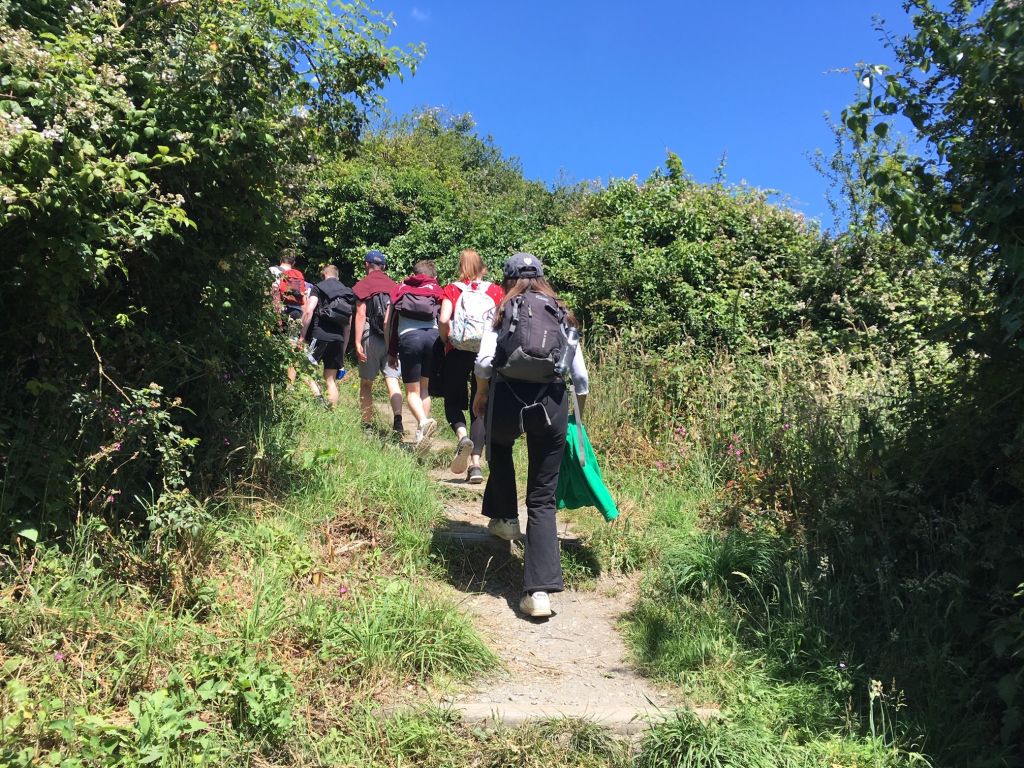
Geography
Exam board: OCR
By focusing on the major global issues likely to dominate our future sustainable use of the planet, Geography encourages students to think about their own place in the world; their values, their rights and their responsibilities. It encourages them to find out more about the places that they are connected to or interested in. Geography appeals to those with enquiring minds who are interested in a wide range of issues and would like to keep breadth as well as depth in their A level programme.
The study of Geography also develops many transferable skills that form the basis of life-long learning. Geographers are independent thinkers who are able to critically analyse and respond to issues, data or ideas they are presented with in a systematic and informed way. These skills prepare students well for university and make them highly desirable employees in whatever field they choose to pursue. Geography graduates can be found in every area of the economy; from the arts through charity work to the Civil Service and the City.
The OCR A Level course runs over two years and be examined in three exams at the end of Year 13; in addition to one piece of coursework as detailed below.
Assessment
- Topic 1: PHYSICAL SYSTEMS: Landscape Systems (Coastal Landscapes) & Earth’s Life Support Systems (Carbon cycle & Water Cycle) (22%)
- 1 hour & 30 minutes, 66 marks
- How are coastal landforms developed? (Case studies of UK and global coastlines). How do coastal landforms evolve as climate changes? (Sea level rise – future challenges). How do humans change coastal landscapes? (Economic development in coastal areas, coastal management). Water & carbon cycles in the Tropical Rainforest & the Arctic Tundra.
- Topic 2: HUMAN INTERACTIONS: Changing Spaces; Making Places & Global Connections (Option B: Migration & Option D: Power & Borders) (22%)
- 1 hour & 30 minutes, 66 marks
- How places are represented in the media? How place identities are created? Comparing contrasting places. Inequalities between places. Global changes in migration in the 21st century. Defining nations, states & sovereignty. Exploring global governance & conflict, including the role of the UN.
- Topic 3: GEOGRAPHICAL DEBATES: Climate Change, Disease Dilemmas, Exploring Oceans, Future of Food, Hazardous Earth (36%)
- Two from the above five options
- Two hours & 30 minutes, 108 marks
- E.g. Climate change: we will explore the evidence for climate change as well as the counter-arguments. Should the current predictions unfold, we will look at the potential consequences across the globe. We will also seek out stories of success.
- Topic 4: INDEPENDENT INVESTIGATION (20%)
- Non-examined assessment (coursework), 60 marks
- 3000-4000 word report. With guidance from their teachers, students will:
- develop their own questions to investigate, design and implement a fieldwork plan, collect primary & secondary data, present this data using a wide variety of maps, graphs and other appropriate techniques, analyse their findings, use statistics, draw conclusions, evaluate the success of their work and the sources / techniques they have selected
Entry requirements
Grade 7 or above at Geography GCSE
Head of Department: Fay Crowther
History
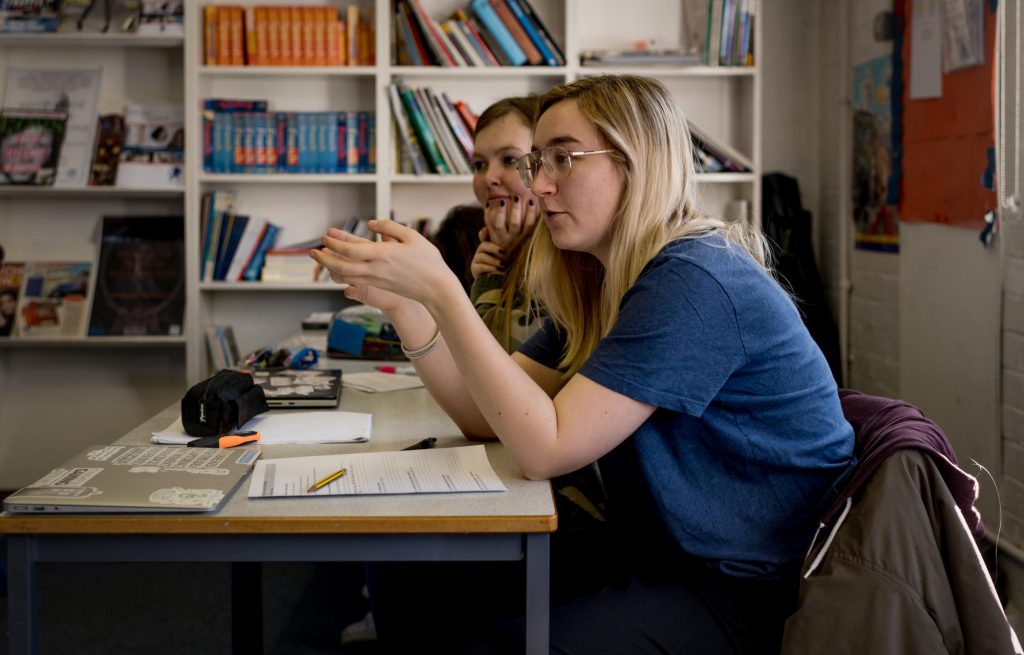
History
Exam board: Edexcel
This is an exciting and relevant History course that gives students the chance to explore topics and key themes that span the 17th, 19th and 20th centuries, and provides an excellent bridge between GCSE and university.
The theme of revolution in Europe runs through two of the modules, with the challenges of Civil War, Restoration and Glorious Revolution in Britain and the Revolution in Russia. Alongside this course students study a wide ranging look at Civil Rights and race relations in the USA from the end of the Civil War up to the election of Obama.
We are very supportive in encouraging all our students to achieve their best work. There is a strong focus on essay writing and document analysis and we place a high emphasis on class discussion and wider reading. Coursework in particular will help develop students’ research and independent study skills.
- Unit 1: Britain, 1625-1701: Conflict, Resolution and Settlement.
- Unit 2: Russia in revolution, 1894-1924.
- Unit 3: Civil rights and race relations in the USA, 1850-2009.
- Unit 4: Coursework on interpretations of the Civil Rights movement.
Assessment
- Year 12 Unit 1 (30%) – Two essays and one source- based interpretation question.
- Year 12 Unit 2 (20%) – One source based question and one essay.
- Year 13 Unit 3 (30%) – Two essays and one source based question.
- Year 13 Unit 4 (20%) – A single coursework assignment on a question set by the school.
Entry requirements
Grade 6 in History or English GCSE.
Head of Department: Leon Whitham

French
Exam board: AQA
Students at KAS follow the AQA French A level syllabus. The course provides stimulating content to enable students to develop their linguistic skills alongside their understanding of the culture and society of countries where French is spoken.
Students study technological and social change, looking at diversity and the benefits it brings. They will study highlights of French-speaking artistic culture, including francophone music and cinema, and learn about political engagement and who wields political power in the French-speaking world. Students also explore the influence of the past on present-day French-speaking communities. Throughout their studies, they will learn the language in the context of French-speaking countries and the issues in which have shaped them. Students will study texts and have the opportunity to carry out independent research on an area of their choice.
Films from French-speaking directors and literature from French authors form part of the teaching content, and are studied either as extracts or as whole pieces over the two-year course.
In the first year, students will develop their reading, writing, listening, translating and speaking skills over the following topics: changing family structures, cyber-society; volunteering; cultural heritage and French contemporary music. A film will also be studied in depth.
In the second year, topics include multiculturalism, the socially marginalised, criminality, the vote, social protest and immigration. A piece of literature will be studied in depth, and students get to do some individual research for a presentation as part of the oral examination.
Students also benefit from speaking sessions with a language assistant.
We provide an enriching experience in French, so our teaching extends beyond the classroom. A trip is organised annually to Lyon, to which students are actively encouraged to take part. We also run a French debating club every fortnight, which has a huge impact on students’ speaking confidence and fluency. Finally, a French Drama Festival takes place at KAS every year; this is mainly designed for A level students and enables them to explore their acting skills in a foreign language whilst competing against 15 other schools.
Assessment
- Paper 1: Listening, reading and writing (50%)
- Two hours & 30 minutes
- Paper 2: Writing (20%)
- two hours
- Paper 3: Speaking (30%)
- 21-23 minutes
Entry requirements
Grades 7-9 in French GCSE are needed to be able to access the syllabus confidently.
Extra information
Each year we host the French Theatre Festival here at King Alfred School and all students are encouraged to enter. One of the highlights for most students is the annual language and cultural enrichment trip to Lyon. In addition to these students are given the opportunity to participate in:
- Outings to A level French conferences
- Outings to the BFI for student conferences regarding French film
- Theatre performances in French in London (depending on what is currently showing)
Head of department: Camilla Parsons

Geography
Exam board: OCR
By focusing on the major global issues likely to dominate our future sustainable use of the planet, Geography encourages students to think about their own place in the world; their values, their rights and their responsibilities. It encourages them to find out more about the places that they are connected to or interested in. Geography appeals to those with enquiring minds who are interested in a wide range of issues and would like to keep breadth as well as depth in their A level programme.
The study of Geography also develops many transferable skills that form the basis of life-long learning. Geographers are independent thinkers who are able to critically analyse and respond to issues, data or ideas they are presented with in a systematic and informed way. These skills prepare students well for university and make them highly desirable employees in whatever field they choose to pursue. Geography graduates can be found in every area of the economy; from the arts through charity work to the Civil Service and the City.
The OCR A Level course runs over two years and be examined in three exams at the end of Year 13; in addition to one piece of coursework as detailed below.
Assessment
- Topic 1: PHYSICAL SYSTEMS: Landscape Systems (Coastal Landscapes) & Earth’s Life Support Systems (Carbon cycle & Water Cycle) (22%)
- 1 hour & 30 minutes, 66 marks
- How are coastal landforms developed? (Case studies of UK and global coastlines). How do coastal landforms evolve as climate changes? (Sea level rise – future challenges). How do humans change coastal landscapes? (Economic development in coastal areas, coastal management). Water & carbon cycles in the Tropical Rainforest & the Arctic Tundra.
- Topic 2: HUMAN INTERACTIONS: Changing Spaces; Making Places & Global Connections (Option B: Migration & Option D: Power & Borders) (22%)
- 1 hour & 30 minutes, 66 marks
- How places are represented in the media? How place identities are created? Comparing contrasting places. Inequalities between places. Global changes in migration in the 21st century. Defining nations, states & sovereignty. Exploring global governance & conflict, including the role of the UN.
- Topic 3: GEOGRAPHICAL DEBATES: Climate Change, Disease Dilemmas, Exploring Oceans, Future of Food, Hazardous Earth (36%)
- Two from the above five options
- Two hours & 30 minutes, 108 marks
- E.g. Climate change: we will explore the evidence for climate change as well as the counter-arguments. Should the current predictions unfold, we will look at the potential consequences across the globe. We will also seek out stories of success.
- Topic 4: INDEPENDENT INVESTIGATION (20%)
- Non-examined assessment (coursework), 60 marks
- 3000-4000 word report. With guidance from their teachers, students will:
- develop their own questions to investigate, design and implement a fieldwork plan, collect primary & secondary data, present this data using a wide variety of maps, graphs and other appropriate techniques, analyse their findings, use statistics, draw conclusions, evaluate the success of their work and the sources / techniques they have selected
Entry requirements
Grade 7 or above at Geography GCSE
Head of Department: Fay Crowther

History
Exam board: Edexcel
This is an exciting and relevant History course that gives students the chance to explore topics and key themes that span the 17th, 19th and 20th centuries, and provides an excellent bridge between GCSE and university.
The theme of revolution in Europe runs through two of the modules, with the challenges of Civil War, Restoration and Glorious Revolution in Britain and the Revolution in Russia. Alongside this course students study a wide ranging look at Civil Rights and race relations in the USA from the end of the Civil War up to the election of Obama.
We are very supportive in encouraging all our students to achieve their best work. There is a strong focus on essay writing and document analysis and we place a high emphasis on class discussion and wider reading. Coursework in particular will help develop students’ research and independent study skills.
- Unit 1: Britain, 1625-1701: Conflict, Resolution and Settlement.
- Unit 2: Russia in revolution, 1894-1924.
- Unit 3: Civil rights and race relations in the USA, 1850-2009.
- Unit 4: Coursework on interpretations of the Civil Rights movement.
Assessment
- Year 12 Unit 1 (30%) – Two essays and one source- based interpretation question.
- Year 12 Unit 2 (20%) – One source based question and one essay.
- Year 13 Unit 3 (30%) – Two essays and one source based question.
- Year 13 Unit 4 (20%) – A single coursework assignment on a question set by the school.
Entry requirements
Grade 6 in History or English GCSE.
Head of Department: Leon Whitham
Latin
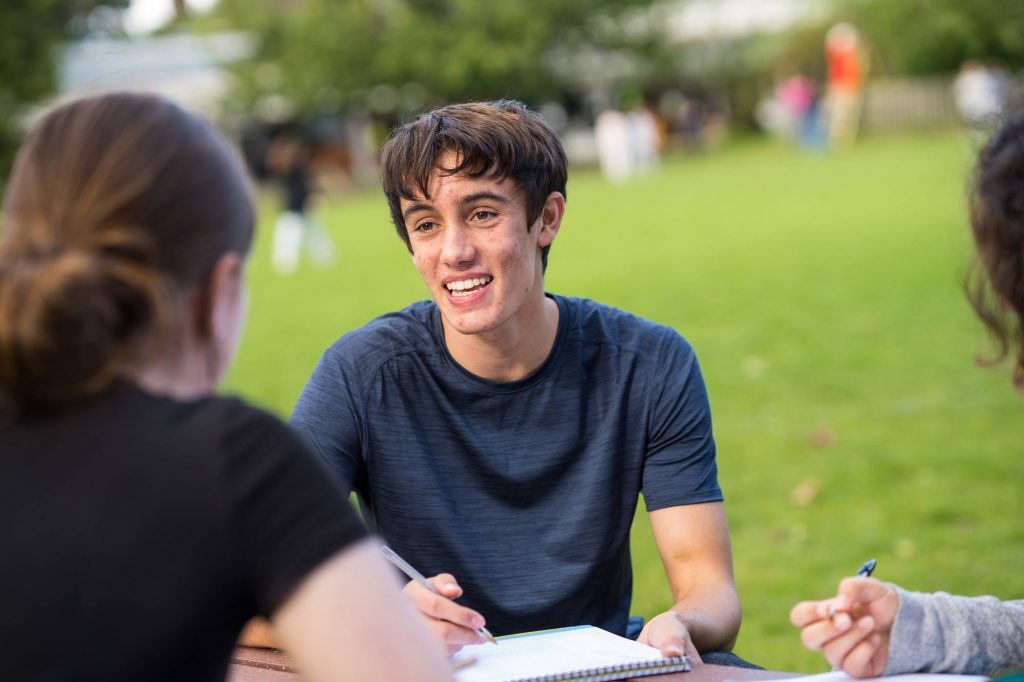
Latin
Exam board: OCR
Every time you get a bus or spot an ambulance or pram, use a credit card or debit card or follow somebody’s example, see the doctor etc …. you are using Latin. It’s there in everyday language: far from dead, it’s very much alive.
Latin was the language of one of the world’s most extensive, powerful and long-lasting empires. After the fall of the Roman Empire it became the language of learning and of the Christian Church, used in the corridors of power and as the language of faith for centuries. It also changed, gradually becoming the modern Romance languages we are so familiar with today: Italian, Spanish, French, Portuguese and Romanian. Through these languages it influenced English. People who study Latin find it helps with their English grammar, vocabulary and spelling; it gives an insight into modern languages; it helps with scientific terminology and stretches the mind with puzzles and poetry.
Above all, it gets you to the heart of the Roman and medieval mind. With Latin, you can read ancient and medieval literature in their original. Latin A level enables you to study the language to a high level and to read some of the world’s greatest literature in the language in which it was written.
Assessment
At the end of the second year of study there will be four papers.
- Paper 1 – Unseen translation
This paper requires students to translate a passage of unseen narrative prose and a passage of unseen poetry in English, and to scan two lines of Latin verse. The prose passage will come from the historian Livy and the poetry from Ovid, so we will prepare for the examination by reading extracts from their work. - Paper 2 – Prose Composition or Comprehension
For this paper, students are given a choice: they can either translate unseen material from English into Latin or demonstrate their understanding of a passage of unseen prose text through comprehension, translation and grammatical questions. - Paper 3 – Prose Literature
You will study two set texts in depth, and will read some other work in translation to help with contextualisation. Questions will include translation, comprehension, and analysis and we will spend time on analytical and essay-writing technique. Cicero, Tacitus, and Pliny are the current authors we can choose from. - Paper 4 – Verse Literature
You will study two set texts in depth, and will read some other work in translation to help with contextualisation. Questions will include translation, comprehension, and analysis and we will spend time on analytical and essay-writing technique. Virgil, Juvenal, and Ovid are the current authors we can choose from.
Entry requirements
Minimum Grade 6 or equivalent in Latin GCSE.
Head of Department: Judith Rice
Mathematics and Further Mathematics
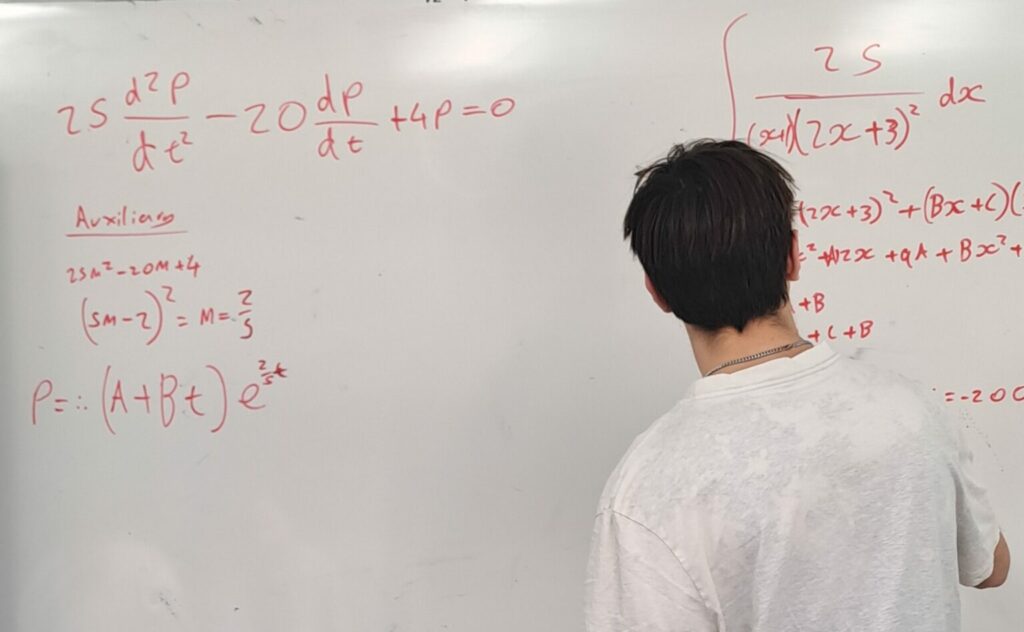
Mathematics and Further Mathematics
Mathematics
Exam board: Edexcel
A difficult subject and one that commands considerable prestige amongst prospective employers, as well as universities. It can help with the study of other subjects (notably Physics, Chemistry, Biology and Geography), but is rewarding and enjoyable in its own right and is a good choice with virtually any combination of subjects taken at A level.
It requires consistent hard work, considerable commitment and a high level of algebraic and numerical skills. Homework of at least three hours per week will be expected. Students need a high level of persistence in solving problems.
Year 1
- Pure Mathematics, Statistics & Mechanics (the AS Edexcel course)
Year 2
- Pure Mathematics, Statistics & Mechanics (the Year 2 Edexcel course)
Assessment
The Pearson Edexcel Level 3 Advanced GCE in Mathematics consists of three externally-examined papers.
- Paper 1 and Paper 2 (33.3% each)
- Two-hour exams
- Pure Mathematics
- Paper 3 (33.3%)
- Two-hour exam
- Statistics and Mechanics
Entry requirements
Grade 7 or higher at GCSE is required.
Extra information
STEP (Sixth Term Examination Paper) Mathematics is a well-established mathematics examination designed to test candidates on questions that are similar in style to undergraduate mathematics. We offer to train suitable students for STEP exams.
Annually, the Maths department runs the UKMT senior competition and the Hans Woyda competition. We also run Maths club. We will probably visit the Thorpe Park STEM fair to enhance the study of Mechanics.
Further Mathematics
Exam board: Edexcel
Further Mathematics can be offered to suitable candidates as a second, much harder, mathematics qualification. Your suitability needs to be discussed with members of the mathematics department. There is some flexibility in which units can be studied and this would be determined by the needs of the individuals within the group.
Year 1
- Core Pure Mathematics 1 & Decision Mathematics 1.
Year 2
- Core Pure Mathematics 2 and Further Mechanics 1.
All modules are assessed by written examinations of duration 1 hour 30 minutes and each carries the same weight in the overall grading.
Assessment
The Pearson Edexcel Level 3 Advanced GCE in Mathematics consists of four externally-examined papers.
- Paper 1 and Paper 2 are 1 hour 30 minute exams each worth 25% of the course. They assess content from Pure Mathematics.
- Paper 3 and Paper 4 are 1 hour 30 minute exams each worth 25% of the course. They are option units. The options we run at KAS are Further Mechanics 1 and Decision Mathematics 1.
Entry requirements
Grade 7 or higher at GCSE is required.
Head of Department: Jeff Harlow
UAL Diploma: Music Performance & Production
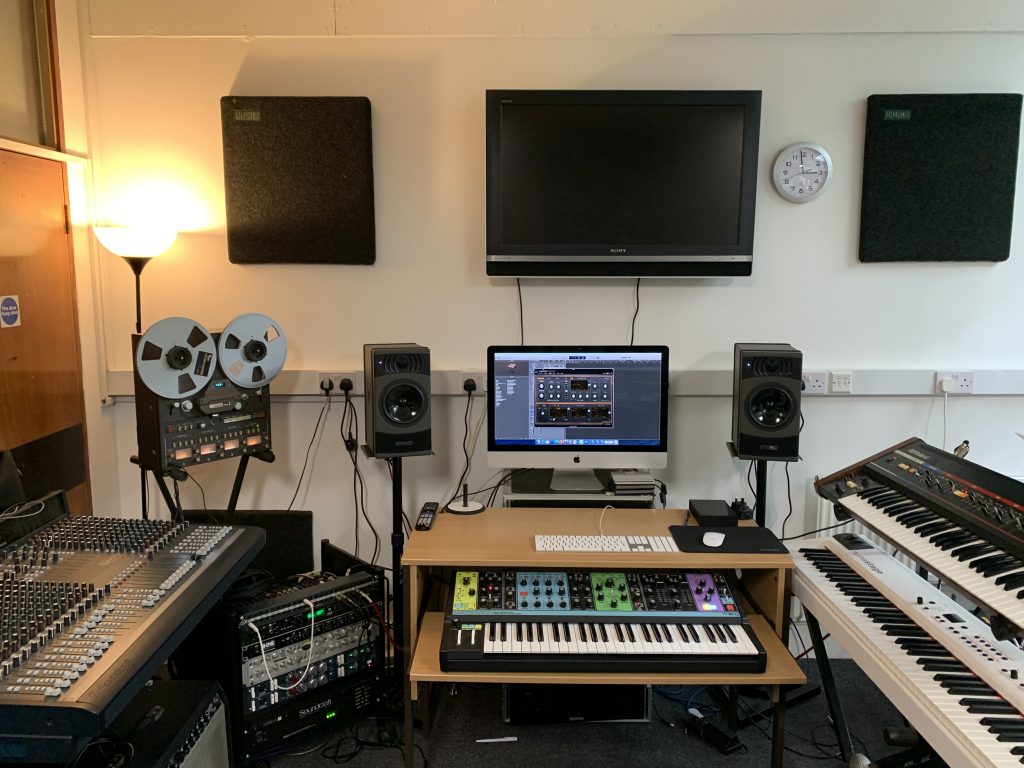
UAL Diploma: Music Performance & Production
Exam board: University of the Arts London (UAL)
The UAL Level 3 Diploma and Extended Diploma in Music Performance and Production have been designed to provide students with the skills, knowledge and understanding necessary to progress to further study and training in a range of music performance and production disciplines.
The qualification has been designed for students who have an interest in music performance and/or music production who wish to explore and extend this interest.
Units studied:
- Unit 1 Principles of music performance and production
Unit aim: Provide students with an introduction to a range of activities essential to the development and delivery of music performance and production. The unit will introduce the basic elements of music performance, production and technology and impart an understanding of performance as a collaborative activity.
- Unit 2 Critical listening and music composition
Unit aim: Provide students with the opportunity to expand and develop listening and compositional skills to help inform musical performance and production ideas and communicate clearly using music and terminology.
- Unit 3 Music industry and professional practice
Unit aim: Provide students with an introduction to the diversity of roles, responsibilities, employment and progression opportunities available within the sector. This unit will introduce the importance of health and safety as integral to the performer and production and give an understanding of the characteristics needed for a career in music performance and production.
- Unit 4 Critical and contextual awareness for music performance and production
Unit aim: Provide students with an introduction to the investigation of both historical and contemporary contexts and perspectives that influence the development of ideas within the music performance and production.
- Unit 5 Music production in context
Unit aim: Enable students to critically analyse, integrate and apply knowledge and understanding acquired in previous units and to explore the specific skills and attributes required for production and design in music.
- Unit 6 Music performance in context
Unit aim: Enable students to critically analyse, integrate and apply the knowledge and understanding acquired in previous units and to explore the specific skills and attributes required for production and design in music.
- Unit 7 Preparation for specialist study in music performance and production
Unit aim: Provide students with an opportunity to critically analyse, integrate and apply the knowledge and understanding acquired in the previous units and to explore the specific skills and attributes required for their own personal practice.
- Unit 8 Collaborative music performance project
Unit aim: Provide students with the opportunity to make use of the skills, knowledge and understanding developed through the previous units in the completion of a collaborative project. The unit will provide students with a measure of self-directed learning and enable them to clarify their longer-term goals through their choice of an activity to explore in greater depth.
Assessment
Units 1-7 will be internally assessed and internally verified through students’ portfolios of evidence and are subject to UAL Awarding Body’s external quality assurance. Students must successfully complete Units 1-7 of the diploma, before moving on to the final unit, Unit 8. Unit 8, the final unit of the Level 3 Diploma in Music Performance & Production, will determine the grade achievement at Level 3. The unit is graded Fail, Pass, Merit or Distinction.
To achieve a Pass in any unit, all assessment criteria must be met. To achieve a Merit or Distinction, all grade criteria in the respective categories must be met in full.
Entry requirements
Grade 6 achieved at GCSE Music, Grade 5 on an instrument or Voice and Grade 4 Music Theory
Students with the relevant skills who may not have achived the above criteria may still apply. All applicants will be invited to attend a personal interview to allow us to assess student’s aptitude and potential to benefit from the course.
UCAS Points
The UAL Level 3 Diploma in Music Performance and Production is included in the UCAS tariff and attracts tariff points: Pass 36 / Merit 60 / Distinction 84
Tariff points are accepted by the majority of creative universities and conservatoires (e.g. LIPA, Leeds Art, Royal Academy of Music, Royal College of Music, Point Blank), as well as some Russel Group and other academic universities (e.g. University of Exeter, Sheffield University and Royal Holloway) but not all. Some universities require qualifications or grades. Please make sure you take this into consideration and ensure you have all the relevant information before applying for the course.
Extra information
We have a recording studio with a range of high quality equipment that includes:
- Neumann TLM-107 condenser microphones X2
- Neumann KM-184 small diaphragm condenser mics X2
- Shure SM58 – X4
- Shure SM57 – X1
- Senheiser drum microphone kit
- Beyer dynamic microphones
- Neve 1073 dual high-end mic pre with EQ
- Toft Audio stereo compressor
- Soundcraft Ghost LE 24 track analogue mixing console
- PMC studio monitors
- Tascam 34B Analogue tape machine
- Roland Juno 6 analogue synthesiser
- Moog matriarch analogue synthesiser
- Various guitar effects pedals – including Eventide and Korg
- Apple iMac workstations running the latest version of Logic Pro X and Sibelius software
Head of Department: Neven Vangelov

Latin
Exam board: OCR
Every time you get a bus or spot an ambulance or pram, use a credit card or debit card or follow somebody’s example, see the doctor etc …. you are using Latin. It’s there in everyday language: far from dead, it’s very much alive.
Latin was the language of one of the world’s most extensive, powerful and long-lasting empires. After the fall of the Roman Empire it became the language of learning and of the Christian Church, used in the corridors of power and as the language of faith for centuries. It also changed, gradually becoming the modern Romance languages we are so familiar with today: Italian, Spanish, French, Portuguese and Romanian. Through these languages it influenced English. People who study Latin find it helps with their English grammar, vocabulary and spelling; it gives an insight into modern languages; it helps with scientific terminology and stretches the mind with puzzles and poetry.
Above all, it gets you to the heart of the Roman and medieval mind. With Latin, you can read ancient and medieval literature in their original. Latin A level enables you to study the language to a high level and to read some of the world’s greatest literature in the language in which it was written.
Assessment
At the end of the second year of study there will be four papers.
- Paper 1 – Unseen translation
This paper requires students to translate a passage of unseen narrative prose and a passage of unseen poetry in English, and to scan two lines of Latin verse. The prose passage will come from the historian Livy and the poetry from Ovid, so we will prepare for the examination by reading extracts from their work. - Paper 2 – Prose Composition or Comprehension
For this paper, students are given a choice: they can either translate unseen material from English into Latin or demonstrate their understanding of a passage of unseen prose text through comprehension, translation and grammatical questions. - Paper 3 – Prose Literature
You will study two set texts in depth, and will read some other work in translation to help with contextualisation. Questions will include translation, comprehension, and analysis and we will spend time on analytical and essay-writing technique. Cicero, Tacitus, and Pliny are the current authors we can choose from. - Paper 4 – Verse Literature
You will study two set texts in depth, and will read some other work in translation to help with contextualisation. Questions will include translation, comprehension, and analysis and we will spend time on analytical and essay-writing technique. Virgil, Juvenal, and Ovid are the current authors we can choose from.
Entry requirements
Minimum Grade 6 or equivalent in Latin GCSE.
Head of Department: Judith Rice

Mathematics and Further Mathematics
Mathematics
Exam board: Edexcel
A difficult subject and one that commands considerable prestige amongst prospective employers, as well as universities. It can help with the study of other subjects (notably Physics, Chemistry, Biology and Geography), but is rewarding and enjoyable in its own right and is a good choice with virtually any combination of subjects taken at A level.
It requires consistent hard work, considerable commitment and a high level of algebraic and numerical skills. Homework of at least three hours per week will be expected. Students need a high level of persistence in solving problems.
Year 1
- Pure Mathematics, Statistics & Mechanics (the AS Edexcel course)
Year 2
- Pure Mathematics, Statistics & Mechanics (the Year 2 Edexcel course)
Assessment
The Pearson Edexcel Level 3 Advanced GCE in Mathematics consists of three externally-examined papers.
- Paper 1 and Paper 2 (33.3% each)
- Two-hour exams
- Pure Mathematics
- Paper 3 (33.3%)
- Two-hour exam
- Statistics and Mechanics
Entry requirements
Grade 7 or higher at GCSE is required.
Extra information
STEP (Sixth Term Examination Paper) Mathematics is a well-established mathematics examination designed to test candidates on questions that are similar in style to undergraduate mathematics. We offer to train suitable students for STEP exams.
Annually, the Maths department runs the UKMT senior competition and the Hans Woyda competition. We also run Maths club. We will probably visit the Thorpe Park STEM fair to enhance the study of Mechanics.
Further Mathematics
Exam board: Edexcel
Further Mathematics can be offered to suitable candidates as a second, much harder, mathematics qualification. Your suitability needs to be discussed with members of the mathematics department. There is some flexibility in which units can be studied and this would be determined by the needs of the individuals within the group.
Year 1
- Core Pure Mathematics 1 & Decision Mathematics 1.
Year 2
- Core Pure Mathematics 2 and Further Mechanics 1.
All modules are assessed by written examinations of duration 1 hour 30 minutes and each carries the same weight in the overall grading.
Assessment
The Pearson Edexcel Level 3 Advanced GCE in Mathematics consists of four externally-examined papers.
- Paper 1 and Paper 2 are 1 hour 30 minute exams each worth 25% of the course. They assess content from Pure Mathematics.
- Paper 3 and Paper 4 are 1 hour 30 minute exams each worth 25% of the course. They are option units. The options we run at KAS are Further Mechanics 1 and Decision Mathematics 1.
Entry requirements
Grade 7 or higher at GCSE is required.
Head of Department: Jeff Harlow

UAL Diploma: Music Performance & Production
Exam board: University of the Arts London (UAL)
The UAL Level 3 Diploma and Extended Diploma in Music Performance and Production have been designed to provide students with the skills, knowledge and understanding necessary to progress to further study and training in a range of music performance and production disciplines.
The qualification has been designed for students who have an interest in music performance and/or music production who wish to explore and extend this interest.
Units studied:
- Unit 1 Principles of music performance and production
Unit aim: Provide students with an introduction to a range of activities essential to the development and delivery of music performance and production. The unit will introduce the basic elements of music performance, production and technology and impart an understanding of performance as a collaborative activity.
- Unit 2 Critical listening and music composition
Unit aim: Provide students with the opportunity to expand and develop listening and compositional skills to help inform musical performance and production ideas and communicate clearly using music and terminology.
- Unit 3 Music industry and professional practice
Unit aim: Provide students with an introduction to the diversity of roles, responsibilities, employment and progression opportunities available within the sector. This unit will introduce the importance of health and safety as integral to the performer and production and give an understanding of the characteristics needed for a career in music performance and production.
- Unit 4 Critical and contextual awareness for music performance and production
Unit aim: Provide students with an introduction to the investigation of both historical and contemporary contexts and perspectives that influence the development of ideas within the music performance and production.
- Unit 5 Music production in context
Unit aim: Enable students to critically analyse, integrate and apply knowledge and understanding acquired in previous units and to explore the specific skills and attributes required for production and design in music.
- Unit 6 Music performance in context
Unit aim: Enable students to critically analyse, integrate and apply the knowledge and understanding acquired in previous units and to explore the specific skills and attributes required for production and design in music.
- Unit 7 Preparation for specialist study in music performance and production
Unit aim: Provide students with an opportunity to critically analyse, integrate and apply the knowledge and understanding acquired in the previous units and to explore the specific skills and attributes required for their own personal practice.
- Unit 8 Collaborative music performance project
Unit aim: Provide students with the opportunity to make use of the skills, knowledge and understanding developed through the previous units in the completion of a collaborative project. The unit will provide students with a measure of self-directed learning and enable them to clarify their longer-term goals through their choice of an activity to explore in greater depth.
Assessment
Units 1-7 will be internally assessed and internally verified through students’ portfolios of evidence and are subject to UAL Awarding Body’s external quality assurance. Students must successfully complete Units 1-7 of the diploma, before moving on to the final unit, Unit 8. Unit 8, the final unit of the Level 3 Diploma in Music Performance & Production, will determine the grade achievement at Level 3. The unit is graded Fail, Pass, Merit or Distinction.
To achieve a Pass in any unit, all assessment criteria must be met. To achieve a Merit or Distinction, all grade criteria in the respective categories must be met in full.
Entry requirements
Grade 6 achieved at GCSE Music, Grade 5 on an instrument or Voice and Grade 4 Music Theory
Students with the relevant skills who may not have achived the above criteria may still apply. All applicants will be invited to attend a personal interview to allow us to assess student’s aptitude and potential to benefit from the course.
UCAS Points
The UAL Level 3 Diploma in Music Performance and Production is included in the UCAS tariff and attracts tariff points: Pass 36 / Merit 60 / Distinction 84
Tariff points are accepted by the majority of creative universities and conservatoires (e.g. LIPA, Leeds Art, Royal Academy of Music, Royal College of Music, Point Blank), as well as some Russel Group and other academic universities (e.g. University of Exeter, Sheffield University and Royal Holloway) but not all. Some universities require qualifications or grades. Please make sure you take this into consideration and ensure you have all the relevant information before applying for the course.
Extra information
We have a recording studio with a range of high quality equipment that includes:
- Neumann TLM-107 condenser microphones X2
- Neumann KM-184 small diaphragm condenser mics X2
- Shure SM58 – X4
- Shure SM57 – X1
- Senheiser drum microphone kit
- Beyer dynamic microphones
- Neve 1073 dual high-end mic pre with EQ
- Toft Audio stereo compressor
- Soundcraft Ghost LE 24 track analogue mixing console
- PMC studio monitors
- Tascam 34B Analogue tape machine
- Roland Juno 6 analogue synthesiser
- Moog matriarch analogue synthesiser
- Various guitar effects pedals – including Eventide and Korg
- Apple iMac workstations running the latest version of Logic Pro X and Sibelius software
Head of Department: Neven Vangelov
Music
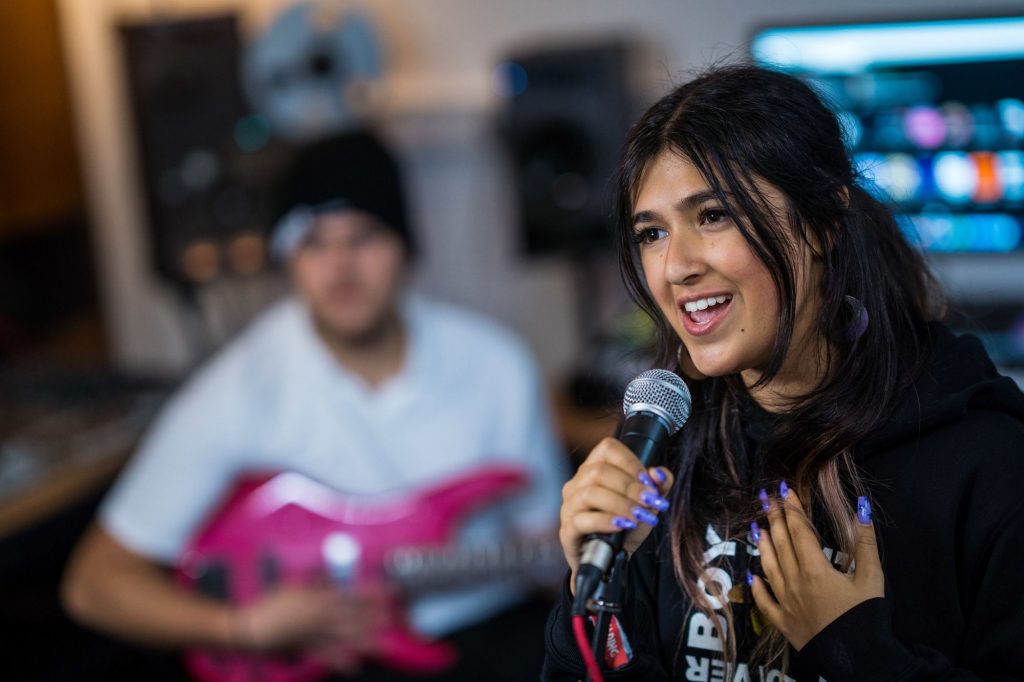
Music
Exam board: AQA
Students are required to take part in departmentally organised groups and ensembles where appropriate. The concert programme allows for a wide range of musical styles with traditional Christmas and summer concerts as well as the hugely popular Unplugged and Axemonsters gigs, and informal and soloist concerts. Each year the Music Department stages a musical production. Past performances include Chicago, Legally Blond, Crazy For You, High School Musical, The Addams Family and The Breakfast Club.
Regular trips to a variety of concerts take place which are relevant to the course.
Assessment
- Component 1: Appraising Music (40%)
- Exam paper with listening and written questions using excerpts of music
The areas of study provide an appropriate focus for students to appraise, develop and demonstrate an in-depth knowledge and understanding of musical elements, musical contexts and musical language. Genres studied are:- Western classical tradition 1650–1910 (compulsory) focusing on the Baroque solo concerto and the operas of Mozart; POP Music; Jazz
- Exam paper with listening and written questions using excerpts of music
- Component 2: Performance (35%)
- Externally assessed coursework
A recital featuring a selection from solo, ensemble and music technology performances.
- Externally assessed coursework
- Component 3: Composition (25%)
- Externally assessed coursework
Students must learn how to develop musical ideas and compose music that is musically convincing through two compositions:- Composition 1: Composition to an externally set brief
- Composition 2: Free composition
- Externally assessed coursework
Entry requirements
Grade 8 or above in GCSE Music. The course involves the reading and understanding of scores using a variety of natation practices. Grade V Theory at Merit or Distinction, therefore, is an absolute requirement. Grade VI standard or higher on one or more instruments or voice.
Extra information
There are plenty of opportunities to involve yourself in Music beyond the A level Music course. We run piano masterclasses, Jazz at KAS and regular trips to a variety of concerts. We also run regular music groups including:
Senior Show Band, Chamber Choir, Barbershop, Chamber Music Ensembles, Orchestra, Rock Bands, Jazz Choir, Jazz Band and Sound Production Club.
Each year we need help from talented musicians to run the KAS Senior Production, Soloist Concerts, Christmas Concert, Spring Concert, Unplugged, Axe Monsters, KAStonbury, Busking Day and number of informal concerts.
Head of Department: Neven Vangelov
Philosophy
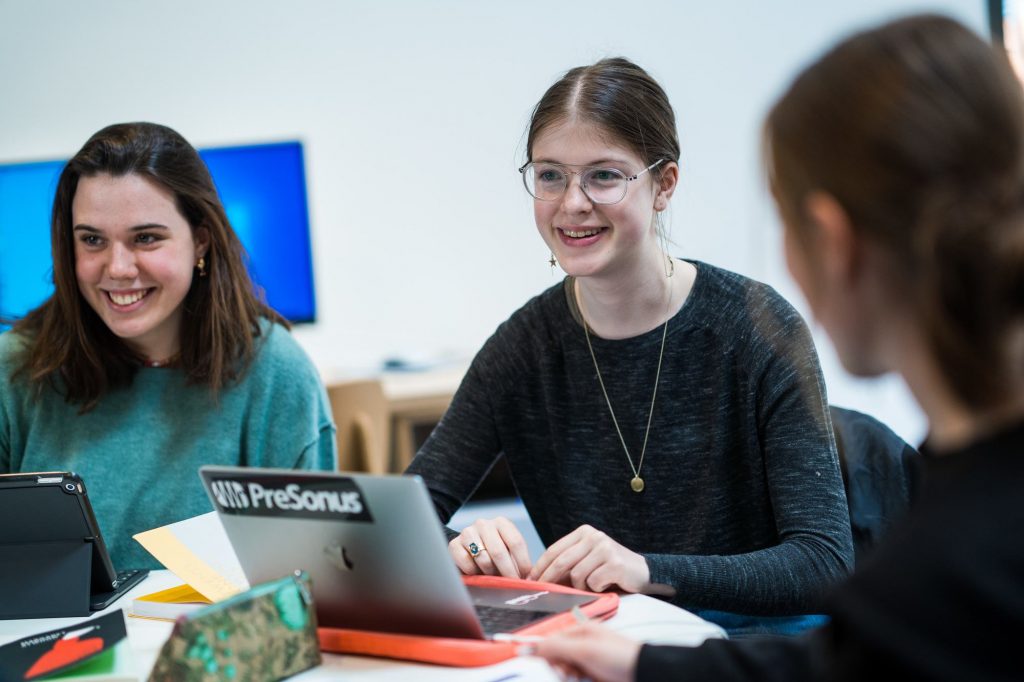
Philosophy
Exam board: AQA
Philosophy dares to ask the deepest, most fundamental questions about human life, human thought, and the nature of the universe, and distinguishes itself by trying to answer these questions using the power of reason alone – that is, by thinking hard, and thinking logically. The study of philosophy sharpens analytical skills and equips students to think more profoundly about the world and their place within it. The course has four components, as follows:
- Component 1: Epistemology
Do we know anything at all? If we do, what is knowledge? And what occurs in sensory perception? Do we perceive mind-independent physical objects directly? This implies that we perceive reality exactly as it is in itself – but surely physical objects don’t really change shape and size depending upon the relative positions and distances of their perceivers. Perhaps what we perceive directly are virtual objects, most of which are caused by and imperfectly resemble real objects. If we accepted this separation of appearance and reality, however, how could we be sure what the real world is like, or even if it exists? Or are the physical objects we perceive simply perceptions in our minds, and ultimately ideas in the mind of God? Are we born knowing facts about reality, as Plato believes? Can we work out what the real world is like just by using our intellects, as Descartes argued? Or, rejecting such rationalism, should we side with the empiricists and say that all knowledge of reality must come from experience? - Component 2: Moral philosophy
How to tell right from wrong? Are acts morally right if and only if they bring about the greatest happiness of the greatest number? Utilitarians think so, but Kant argues that certain types of action are categorically morally wrong, regardless of consequences and circumstances. Can this dispute be sidestepped adequately by accepting Aristotle’s view that, in order always to know the right thing to do and be motivated to do it, one must first become a good and virtuous person? Are moral claims even capable of being true? If so, what makes them true? Are moral values woven into the fabric of reality? Then what is the nature of that reality, if it is such as to contain moral values? If not, then what is going on when people use moral language? Are they merely expressing their emotions? Or issuing commands? Can morality be objective and factual, or is it necessarily subjective and devoid of factual content? - Component 3: The Metaphysics of God
If the concept of God is coherent, can its analysis provide a proof of God’s existence, as proponents of the ontological argument maintain? Or does the rational case for God require evidence, as advocates of the design argument claim? Or, with those favouring the cosmological argument, can we defend theistic belief by arguing that ‘God’ is the best answer to such questions as ‘why is there something rather than nothing?’ Perhaps the concept of God is hopelessly incoherent, either internally, or in conjunction with the evident occurrence of moral and natural evil. Can the problem of evil be solved by appeal to either human free will or God’s plans for our spiritual development? Is religious language even capable of stating truths? If not, how are we to understand religious utterances, and religion itself? - Component 4: The Metaphysics of mind
What is the mind? What are mental states? What is consciousness? Descartes and the dualists claim that the mental is entirely non-physical and beyond the reach of neuroscience, but are their arguments compelling? How do they explain causal interaction between non-physical mental states and physical bodies? Other philosophers pursue materialist and reductionist accounts of the mental. For behaviourists, mental states are either actual episodes of publicly observable bodily behaviour or dispositions toward such behaviour. For mindbrain identity theorists, mental states are brain states. For functionalists, mental states are more like software than hardware. The perceived failure of all of the above leads eliminative materialists to conclude that mental states, such as beliefs, do not exist – but what is it to adhere to such a view, if not to have beliefs?
Assessment
This is a two-year linear A level course, assessed by means of two exam papers:
- Paper 1 covering Epistemology and Moral Philosophy
- Paper 2 covering the Metaphysics of God and the Metaphysics of Mind.
Entry requirements
Minimum Grade 6 in English GCSE is recommended.
Head of Department: Paul Dawson
Photography
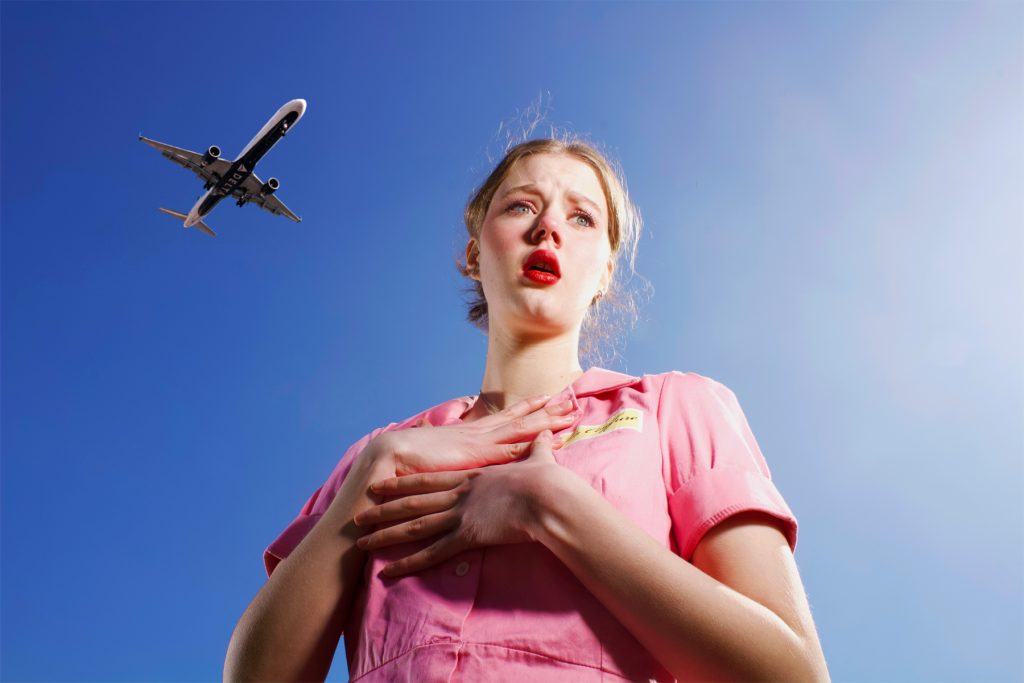
Photography
Exam board: Eduqas WJEC
Year 12
The first year of the course will allow you to explore a broad and diverse range of practical and conceptual starting points for exploring photography. This will involve still and moving images, research work in galleries and museums and travelling in and around London, and abroad, to build your portfolio and work journal. Specific tasks are linked to the history and theory of Photography as well as contemporary practice.
Year 13: Unit 1
This is your personal project and will allow you to develop personal ideas and carry out in- depth research into your chosen area of photographic practice, from documentary to portraiture, fashion to travel and beyond. Research the underlines your practical exploration of photography and other lens-based media is a key component of the Personal Investigation
Year 13: Unit 2
Externally Set Assignment. Build a portfolio of images and research investigating one theme from the options made available at the start of the Spring term. A short project that requires you to put into practice all the practical and research skills you have learnt up to this point.
Assessment
The A level is assessed through two components:
- Component 1: Personal Investigation (60%)
- Component 2: Externally set assignment (40%)
Entry requirements
Grade 7 or above in Art and Design or Photography GCSE, or on submission of a portfolio of photographic work.
Head of Department: Cliff Bevan

Music
Exam board: AQA
Students are required to take part in departmentally organised groups and ensembles where appropriate. The concert programme allows for a wide range of musical styles with traditional Christmas and summer concerts as well as the hugely popular Unplugged and Axemonsters gigs, and informal and soloist concerts. Each year the Music Department stages a musical production. Past performances include Chicago, Legally Blond, Crazy For You, High School Musical, The Addams Family and The Breakfast Club.
Regular trips to a variety of concerts take place which are relevant to the course.
Assessment
- Component 1: Appraising Music (40%)
- Exam paper with listening and written questions using excerpts of music
The areas of study provide an appropriate focus for students to appraise, develop and demonstrate an in-depth knowledge and understanding of musical elements, musical contexts and musical language. Genres studied are:- Western classical tradition 1650–1910 (compulsory) focusing on the Baroque solo concerto and the operas of Mozart; POP Music; Jazz
- Exam paper with listening and written questions using excerpts of music
- Component 2: Performance (35%)
- Externally assessed coursework
A recital featuring a selection from solo, ensemble and music technology performances.
- Externally assessed coursework
- Component 3: Composition (25%)
- Externally assessed coursework
Students must learn how to develop musical ideas and compose music that is musically convincing through two compositions:- Composition 1: Composition to an externally set brief
- Composition 2: Free composition
- Externally assessed coursework
Entry requirements
Grade 8 or above in GCSE Music. The course involves the reading and understanding of scores using a variety of natation practices. Grade V Theory at Merit or Distinction, therefore, is an absolute requirement. Grade VI standard or higher on one or more instruments or voice.
Extra information
There are plenty of opportunities to involve yourself in Music beyond the A level Music course. We run piano masterclasses, Jazz at KAS and regular trips to a variety of concerts. We also run regular music groups including:
Senior Show Band, Chamber Choir, Barbershop, Chamber Music Ensembles, Orchestra, Rock Bands, Jazz Choir, Jazz Band and Sound Production Club.
Each year we need help from talented musicians to run the KAS Senior Production, Soloist Concerts, Christmas Concert, Spring Concert, Unplugged, Axe Monsters, KAStonbury, Busking Day and number of informal concerts.
Head of Department: Neven Vangelov

Philosophy
Exam board: AQA
Philosophy dares to ask the deepest, most fundamental questions about human life, human thought, and the nature of the universe, and distinguishes itself by trying to answer these questions using the power of reason alone – that is, by thinking hard, and thinking logically. The study of philosophy sharpens analytical skills and equips students to think more profoundly about the world and their place within it. The course has four components, as follows:
- Component 1: Epistemology
Do we know anything at all? If we do, what is knowledge? And what occurs in sensory perception? Do we perceive mind-independent physical objects directly? This implies that we perceive reality exactly as it is in itself – but surely physical objects don’t really change shape and size depending upon the relative positions and distances of their perceivers. Perhaps what we perceive directly are virtual objects, most of which are caused by and imperfectly resemble real objects. If we accepted this separation of appearance and reality, however, how could we be sure what the real world is like, or even if it exists? Or are the physical objects we perceive simply perceptions in our minds, and ultimately ideas in the mind of God? Are we born knowing facts about reality, as Plato believes? Can we work out what the real world is like just by using our intellects, as Descartes argued? Or, rejecting such rationalism, should we side with the empiricists and say that all knowledge of reality must come from experience? - Component 2: Moral philosophy
How to tell right from wrong? Are acts morally right if and only if they bring about the greatest happiness of the greatest number? Utilitarians think so, but Kant argues that certain types of action are categorically morally wrong, regardless of consequences and circumstances. Can this dispute be sidestepped adequately by accepting Aristotle’s view that, in order always to know the right thing to do and be motivated to do it, one must first become a good and virtuous person? Are moral claims even capable of being true? If so, what makes them true? Are moral values woven into the fabric of reality? Then what is the nature of that reality, if it is such as to contain moral values? If not, then what is going on when people use moral language? Are they merely expressing their emotions? Or issuing commands? Can morality be objective and factual, or is it necessarily subjective and devoid of factual content? - Component 3: The Metaphysics of God
If the concept of God is coherent, can its analysis provide a proof of God’s existence, as proponents of the ontological argument maintain? Or does the rational case for God require evidence, as advocates of the design argument claim? Or, with those favouring the cosmological argument, can we defend theistic belief by arguing that ‘God’ is the best answer to such questions as ‘why is there something rather than nothing?’ Perhaps the concept of God is hopelessly incoherent, either internally, or in conjunction with the evident occurrence of moral and natural evil. Can the problem of evil be solved by appeal to either human free will or God’s plans for our spiritual development? Is religious language even capable of stating truths? If not, how are we to understand religious utterances, and religion itself? - Component 4: The Metaphysics of mind
What is the mind? What are mental states? What is consciousness? Descartes and the dualists claim that the mental is entirely non-physical and beyond the reach of neuroscience, but are their arguments compelling? How do they explain causal interaction between non-physical mental states and physical bodies? Other philosophers pursue materialist and reductionist accounts of the mental. For behaviourists, mental states are either actual episodes of publicly observable bodily behaviour or dispositions toward such behaviour. For mindbrain identity theorists, mental states are brain states. For functionalists, mental states are more like software than hardware. The perceived failure of all of the above leads eliminative materialists to conclude that mental states, such as beliefs, do not exist – but what is it to adhere to such a view, if not to have beliefs?
Assessment
This is a two-year linear A level course, assessed by means of two exam papers:
- Paper 1 covering Epistemology and Moral Philosophy
- Paper 2 covering the Metaphysics of God and the Metaphysics of Mind.
Entry requirements
Minimum Grade 6 in English GCSE is recommended.
Head of Department: Paul Dawson

Photography
Exam board: Eduqas WJEC
Year 12
The first year of the course will allow you to explore a broad and diverse range of practical and conceptual starting points for exploring photography. This will involve still and moving images, research work in galleries and museums and travelling in and around London, and abroad, to build your portfolio and work journal. Specific tasks are linked to the history and theory of Photography as well as contemporary practice.
Year 13: Unit 1
This is your personal project and will allow you to develop personal ideas and carry out in- depth research into your chosen area of photographic practice, from documentary to portraiture, fashion to travel and beyond. Research the underlines your practical exploration of photography and other lens-based media is a key component of the Personal Investigation
Year 13: Unit 2
Externally Set Assignment. Build a portfolio of images and research investigating one theme from the options made available at the start of the Spring term. A short project that requires you to put into practice all the practical and research skills you have learnt up to this point.
Assessment
The A level is assessed through two components:
- Component 1: Personal Investigation (60%)
- Component 2: Externally set assignment (40%)
Entry requirements
Grade 7 or above in Art and Design or Photography GCSE, or on submission of a portfolio of photographic work.
Head of Department: Cliff Bevan
Physical Education (PE)
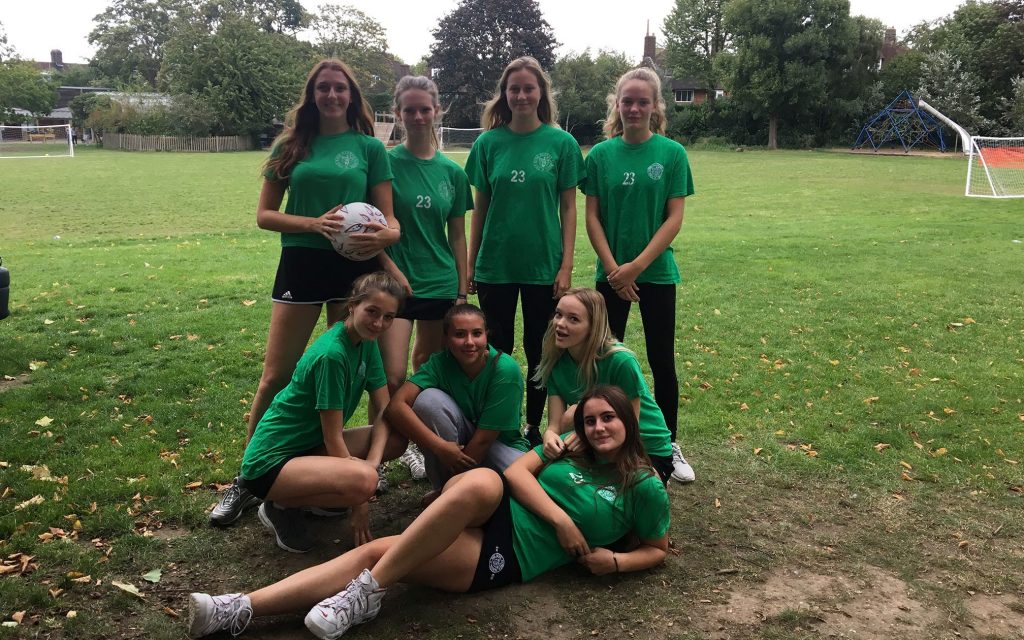
Physical Education (PE)
Exam board: OCR
This practical and engaging course allows learners to study Physical Education (PE) in an academic setting enabling them to critically analyse and evaluate their physical performance and apply their experience of physical activity in developing their knowledge and understanding of the subject.
The non-examined practical allows students to explore the activity as a sports performer or coach where they will analyse and evaluate their own performance. Students will broaden their depth of knowledge on fascinating topics such as the developing technology in sport, and the politically driven History of the Olympics.
The course will prepare learners for further study of PE or sports science courses at University, as well as subject related areas such as psychology, sociology or biology. This course is perfect for students interested in the broader aspect of Sport and PE and will develop effective decision making skills enabling them to stand out and effectively promote themselves as they progress through life.
Assessment
This course is assessed through three exam papers:
- Paper 1: Physiological factors affecting performance (30%)
- Paper 2: Psychological Factors affecting performance (20%)
- Paper 3: Socio-cultural issues in physical activity and sport (20%)
Non-exam assessment
- Practical performances (in coaching or performing) (15%)
- Evaluating and analysing performance improvement (15%)
Entry requirements
Minimum Grade 6 in PE or Double Science is recommended. It is strongly encouraged that students play/coach at least one sport to a club/higher level. PE GCSE is not mandatory to apply for the course.
Extra information
We would expect students to attend Sixth Form Games sessions and encourage students to take on 6th Form coaching roles where possible.
Head of Department: Tom Franklin and Henriette Farr
Physics
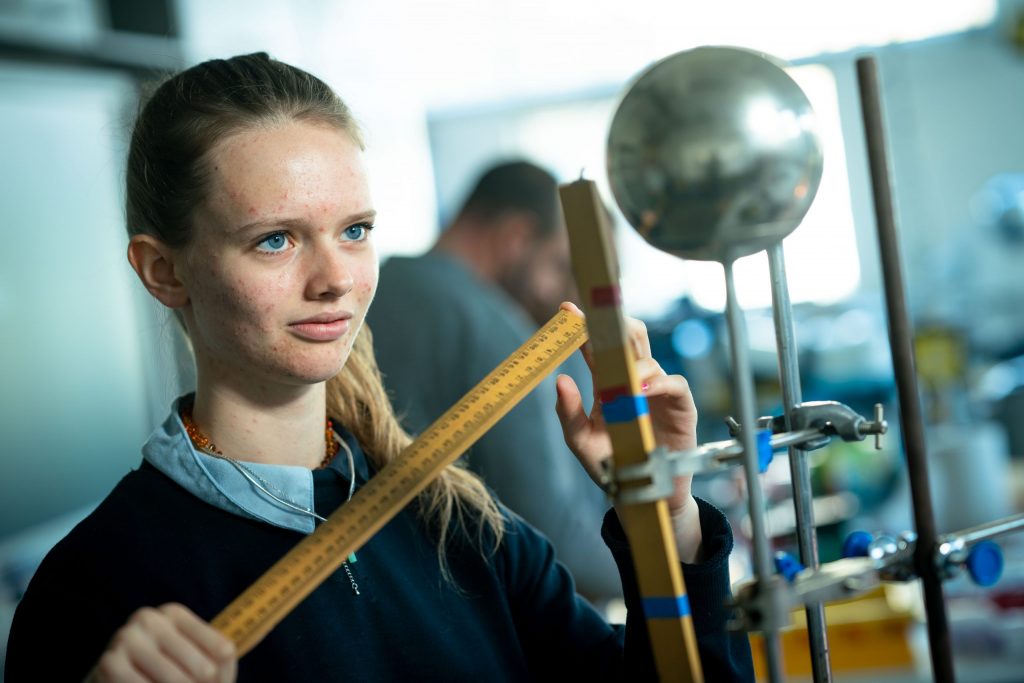
Physics
Exam board: AQA
Physicists explore the fundamental nature of almost everything we know of. They probe the furthest reaches of the earth to study the smallest pieces of matter and venture far into space to discover exoplanets. Join them to enter a world deep beneath the surface of normal human experience.
In Physics A level there are opportunities for candidates to
- develop practical skills (for example, in choosing and using materials and equipment).
- practise data-handling skills (for example, estimating, presenting and analysing data).
- use their imagination.
- place physics in a social or historical context and argue about the issues that arise.
- be rewarded for initiative and interest in learning – for finding out for themselves.
- use information and communication technology as an integral part of learning physics.
Year 1
- Measurements and their errors; Particles and radiation; Waves; Mechanics and energy; Electricity.
Year 2
- Further mechanics; Thermal physics; Fields; Nuclear physics; Plus one option from the following –
- Astrophysics; Medical physics: Engineering physics: Turning points in physics; Electronics.
Practicals
Throughout the course you will carry out practical activities including:
- Investigating interference and diffraction of laser light
- Measuring acceleration due to gravity
- Investigating systems that oscillate
- Investigation of the links between temperature, volume and pressure
- Safe use of ionising radiation
- Investigating magnetic fields.
Assessment
There is no coursework on this course. However, your performance during practicals will be assessed. There are three exams at the end of the two years for A level, all of which are two hours long. At least 15% of the marks for A level Physics are based on what you have learnt in your practicals.
Entry requirements
Grade 7/7 in GCSE Double Science or Grade 7 in GCSE Physics and Grade 7 in GCSE Mathematics. The Mathematical demands in Physics is very high so we advise that you study A level Maths alongside Physics
Head of Department: Philip Price
Politics
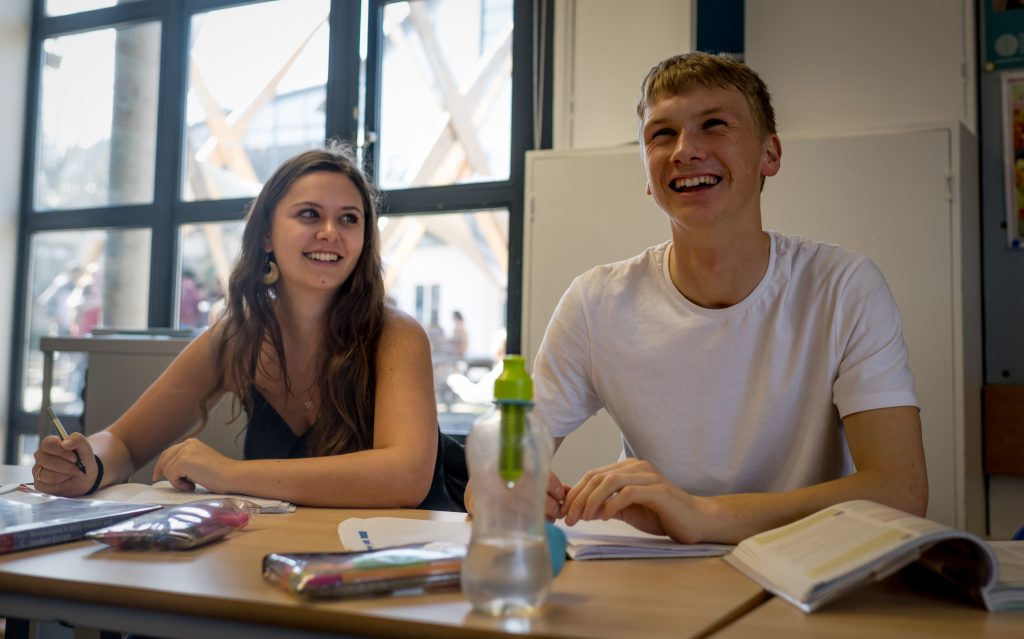
Politics
Exam board: Edexcel
Politics is a fascinating and constantly changing subject that challenges students’ ideas about how democracy works. By studying this subject at A level, students will learn about how government is organised in the UK and USA in theory and how politics actually works in practice. Students are asked to cast a critical eye over what they learn to form arguments. Skills in research are crucial and students are required to engage in independent study. They are encouraged to challenge their own beliefs and to develop skills of empathy and persuasive argument as well as a sense that arguments must be balanced before conclusions are made. Students learn how to approach short structured questions, how to study stimulus material and how to structure essays. We expect students to develop an extensive knowledge of current affairs and to build up real examples that they can apply to understanding their own lives and to relate to issues in other subjects. The subject would suit anyone with an interest in current affairs who is keen to learn more. Students need to be prepared to stay up-to-date using newspapers, magazines and documentaries and to be prepared to discuss politics and to listen and try to understand others’ views.
The course is divided into three parts:
- UK Politics and Government
This section explores the themes of democracy and participation, political parties, electoral systems, voting behaviour and the influence of the media in the UK. Additionally, this looks at the UK’s institutional framework, e.g. the role of the Prime Minister, Parliament and judges. - US Comparative Politics and Government
This section introduces students to the US systems of government drawing clear contrasts with the UK. For example, it will assess who is more powerful, the British PM or the American President along with the different democratic traditions of these countries. - Political ideas
This part of the course introduces students to the key political ideologies and the main thinkers who have influenced their development over time. There are three compulsory ideologies: conservatism; liberalism; and socialism and then an optional one is also chosen (from either nationalism, anarchism, feminism, ecologism or multiculturalism).
Assessment
The course is examined by three final two-hour exams which are each worth 33.3% of the overall grade.
Entry requirements
Grade 6 in GCSE English or History.
Extra information
There are lots of opportunities for students to broaden their political knowledge and understanding as well as stimulate their interest outside the classroom. In recent years students have attended Schools’ Question Time in Westminster, a team has taken part in the European Youth Parliament and there are also opportunities to attend revision workshops and conferences.
Head of Department: Leon Whitham

Physical Education (PE)
Exam board: OCR
This practical and engaging course allows learners to study Physical Education (PE) in an academic setting enabling them to critically analyse and evaluate their physical performance and apply their experience of physical activity in developing their knowledge and understanding of the subject.
The non-examined practical allows students to explore the activity as a sports performer or coach where they will analyse and evaluate their own performance. Students will broaden their depth of knowledge on fascinating topics such as the developing technology in sport, and the politically driven History of the Olympics.
The course will prepare learners for further study of PE or sports science courses at University, as well as subject related areas such as psychology, sociology or biology. This course is perfect for students interested in the broader aspect of Sport and PE and will develop effective decision making skills enabling them to stand out and effectively promote themselves as they progress through life.
Assessment
This course is assessed through three exam papers:
- Paper 1: Physiological factors affecting performance (30%)
- Paper 2: Psychological Factors affecting performance (20%)
- Paper 3: Socio-cultural issues in physical activity and sport (20%)
Non-exam assessment
- Practical performances (in coaching or performing) (15%)
- Evaluating and analysing performance improvement (15%)
Entry requirements
Minimum Grade 6 in PE or Double Science is recommended. It is strongly encouraged that students play/coach at least one sport to a club/higher level. PE GCSE is not mandatory to apply for the course.
Extra information
We would expect students to attend Sixth Form Games sessions and encourage students to take on 6th Form coaching roles where possible.
Head of Department: Tom Franklin and Henriette Farr

Physics
Exam board: AQA
Physicists explore the fundamental nature of almost everything we know of. They probe the furthest reaches of the earth to study the smallest pieces of matter and venture far into space to discover exoplanets. Join them to enter a world deep beneath the surface of normal human experience.
In Physics A level there are opportunities for candidates to
- develop practical skills (for example, in choosing and using materials and equipment).
- practise data-handling skills (for example, estimating, presenting and analysing data).
- use their imagination.
- place physics in a social or historical context and argue about the issues that arise.
- be rewarded for initiative and interest in learning – for finding out for themselves.
- use information and communication technology as an integral part of learning physics.
Year 1
- Measurements and their errors; Particles and radiation; Waves; Mechanics and energy; Electricity.
Year 2
- Further mechanics; Thermal physics; Fields; Nuclear physics; Plus one option from the following –
- Astrophysics; Medical physics: Engineering physics: Turning points in physics; Electronics.
Practicals
Throughout the course you will carry out practical activities including:
- Investigating interference and diffraction of laser light
- Measuring acceleration due to gravity
- Investigating systems that oscillate
- Investigation of the links between temperature, volume and pressure
- Safe use of ionising radiation
- Investigating magnetic fields.
Assessment
There is no coursework on this course. However, your performance during practicals will be assessed. There are three exams at the end of the two years for A level, all of which are two hours long. At least 15% of the marks for A level Physics are based on what you have learnt in your practicals.
Entry requirements
Grade 7/7 in GCSE Double Science or Grade 7 in GCSE Physics and Grade 7 in GCSE Mathematics. The Mathematical demands in Physics is very high so we advise that you study A level Maths alongside Physics
Head of Department: Philip Price

Politics
Exam board: Edexcel
Politics is a fascinating and constantly changing subject that challenges students’ ideas about how democracy works. By studying this subject at A level, students will learn about how government is organised in the UK and USA in theory and how politics actually works in practice. Students are asked to cast a critical eye over what they learn to form arguments. Skills in research are crucial and students are required to engage in independent study. They are encouraged to challenge their own beliefs and to develop skills of empathy and persuasive argument as well as a sense that arguments must be balanced before conclusions are made. Students learn how to approach short structured questions, how to study stimulus material and how to structure essays. We expect students to develop an extensive knowledge of current affairs and to build up real examples that they can apply to understanding their own lives and to relate to issues in other subjects. The subject would suit anyone with an interest in current affairs who is keen to learn more. Students need to be prepared to stay up-to-date using newspapers, magazines and documentaries and to be prepared to discuss politics and to listen and try to understand others’ views.
The course is divided into three parts:
- UK Politics and Government
This section explores the themes of democracy and participation, political parties, electoral systems, voting behaviour and the influence of the media in the UK. Additionally, this looks at the UK’s institutional framework, e.g. the role of the Prime Minister, Parliament and judges. - US Comparative Politics and Government
This section introduces students to the US systems of government drawing clear contrasts with the UK. For example, it will assess who is more powerful, the British PM or the American President along with the different democratic traditions of these countries. - Political ideas
This part of the course introduces students to the key political ideologies and the main thinkers who have influenced their development over time. There are three compulsory ideologies: conservatism; liberalism; and socialism and then an optional one is also chosen (from either nationalism, anarchism, feminism, ecologism or multiculturalism).
Assessment
The course is examined by three final two-hour exams which are each worth 33.3% of the overall grade.
Entry requirements
Grade 6 in GCSE English or History.
Extra information
There are lots of opportunities for students to broaden their political knowledge and understanding as well as stimulate their interest outside the classroom. In recent years students have attended Schools’ Question Time in Westminster, a team has taken part in the European Youth Parliament and there are also opportunities to attend revision workshops and conferences.
Head of Department: Leon Whitham
Psychology
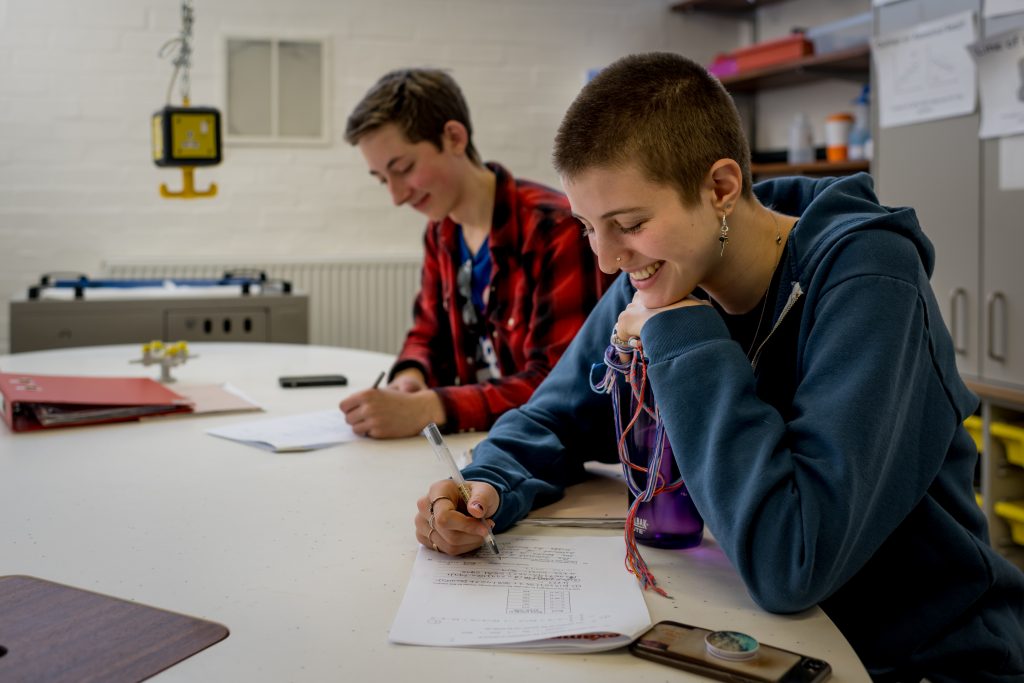
Psychology
Exam board: AQA
A level Psychology will give you a good fundamental and lasting insight into human behaviour, thinking and reasoning. This will definitely help you to cope better with your own life, but also it will help you to gain a better understanding of others.
Assessment
The A level exam consists of three separate units. Each unit is assessed by a two hour exam, which comprises of multiple choice, short answer and extended writing questions.
- Paper 1: Introductory topics in Psychology
- Social influence: conformity, obedience, resistance to social pressures, minority influence and the role of social influence processes in social change.
- Memory: models of memory, explanations for forgetting, factors affecting the accuracy of eyewitness testimony, use of the cognitive interview in police setting.
- Attachments: caregiver-infant interactions in humans, stages of attachment, the role of the father, explanations of attachment, secure and insecure attachments, influence of early attachments on adult relationships.
- Psychopathology: definitions of abnormality, behavioural, cognitive and biological approach to explaining and treating disorders, phobias, depression, OCD.
- Paper 2: Psychology in context
- Approaches in psychology: origins of psychology, learning approaches, cognitive approach, biological approach, psychodynamic approach, humanistic approach.
- Biopsychology: the role of the nervous and endocrine systems on behaviour.
- Research methods: all methods and techniques of conducting independent research.
- Paper 3: Issues and options in Psychology
- Issues and debates in psychology: gender and culture in psychology, free will and determinism, the nature-nurture debate, holism and reductionism.
- Relationships: theories of romantic relationships, relationships formation, maintenance and breakdown, factors affecting attraction, nature of virtual relationships, levels of parasocial relationships.
- Schizophrenia: symptoms, validity of diagnosis, biological and psychological explanations, drug therapy and antipsychotics, cognitive behavioural therapy and family interventions.
- Forensic Psychology: issues in defining crime, offender profiling, types of offenders and investigative Psychology, geographical profiling, biological and psychological theories of crime, dealing with offending behaviour, including recidivism, behaviour modification and anger management.
Entry requirements
Grade 6 in English GCSE.
Extra information
Every year students attend trips to Sigmund Freud’s house to explore the depth of the unconscious, London Zoo to experience the systematic desensitisation therapy for arachnophobia, Natural History Museum to look at the evolutionary impacts on human behaviour. We area also regular visitors to the Wellcome Collection for their frequent mental health events.
Head of Department: Ania Herbut
Sociology
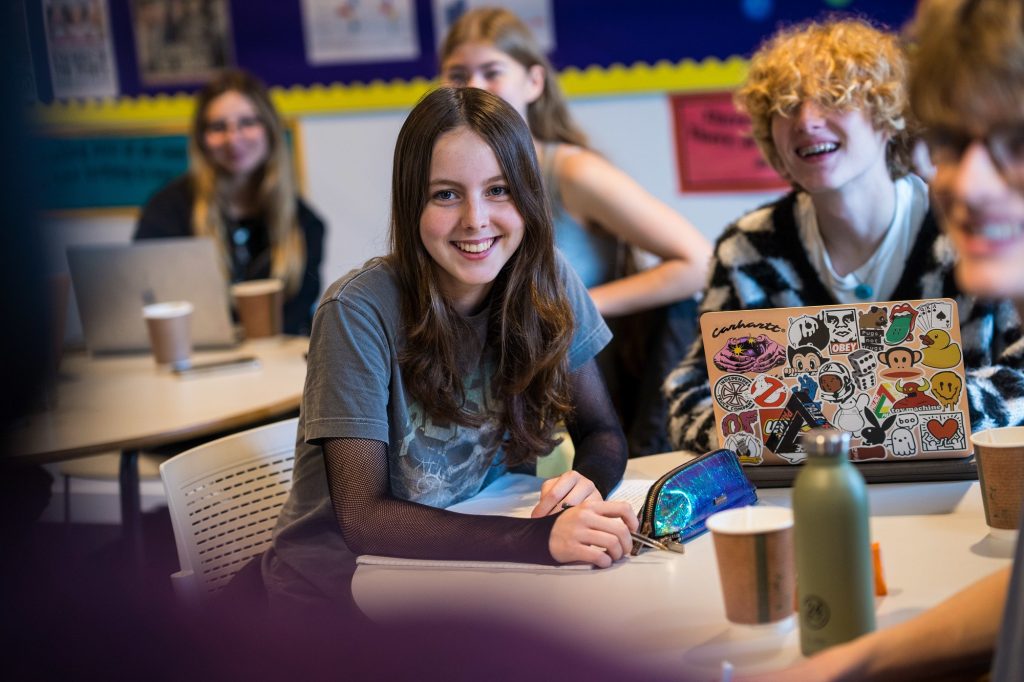
Sociology
Exam board: AQA
Is turning to crime a choice? Does a ‘gender gap’ exist within the education system? Is the divorce rate rising? Does social class still exist in society? Is gender a social construct? How has British society changed over the last 50 years? These are some of the questions that Sociology, the study of human society and its institutions, seeks to answer.
For most students, Sociology is more than just an academic discipline, its a means to develop tools and skills to understand and shape the society we currently live in. We look at various institutions in society, such as, the family, the education system, the government and criminal justice system, religion, the healthcare system and much more. By critically examining evidence relating to British and international societies, you develop the ability to comprehend the social world you live in but also consider what future societies may look like too. Sociology lessons will challenge you and encourage you to go ‘beyond the textbook’ as we not only study sociological thought and research but also discover evidence from sources that are often overlooked but still prove to be insightful, such as, newspaper articles, social media, film, and music.
Assessment
The course is examined by three final two-hour exams which are each worth 33.3% of the overall grade.
- Paper 1: Education with Theory and Methods
- Education
- Methods in Context
- Theory and Methods
- Paper 2: Topics in Sociology
- Families and Households
- Beliefs in Society
- Paper 3: Crime and Deviance with Theory and Methods
- Crime and Deviance
- Theory and Methods
Education:
- The role and functions of the education system, including its relationship to the economy and to class structure
- Differential educational achievement of social groups by social class, gender and ethnicity in contemporary society
- Relationships and processes within schools, with particular reference to teacher/pupil relationships, pupil identities and subcultures, the hidden curriculum, and the organisation of teaching and learning
- The significance of educational policies, including policies of selection, marketisation and privatisation, and policies to achieve greater equality of opportunity or outcome, for an understanding of the structure, role, impact and experience of and access to education; the impact of globalisation on educational policy
Families and Households:
- The relationship of the family to the social structure and social change with particular reference to the economy and to state policies.
- Changing patterns of marriage, cohabitation, separation, divorce, childbearing and the life course, including the sociology of personal life, and the diversity of contemporary family and household structures.
- Gender roles, domestic labour and power relationships within the family in contemporary society.
- The nature of childhood, and changes in the status of children in the family and society.
- Demographic trends in the United Kingdom since 1900: birth rates, death rates, family size, life expectancy, ageing population, and migration and globalisation.
Beliefs in Society:
- Ideology, science and religion, including both Christian and non-Christian religious traditions.
- The relationship between social change and social stability, and religious beliefs, practices and organisations.
- Religious organisations, including cults, sects, denominations, churches and New Age movements, and their relationship to religious and spiritual belief and practice.
- The relationship between different social groups and religious/spiritual organisations and movements, beliefs and practices.
- The significance of religion and religiosity in the contemporary world, including the nature and extent of secularisation in a global context, and globalisation and the spread of religions.
Crime and Deviance:
- Crime, deviance, social order and social control.
- The social distribution of crime and deviance by ethnicity, gender and social class, including recent patterns and trends in crime.
- Globalisation and crime in contemporary society; the media and crime; green crime; human rights and state crimes.
- Crime control, surveillance, prevention and punishment, victims, and the role of the criminal justice system and other agencies.
Theory and Methods:
- Quantitative and qualitative methods of research; research design.
- Sources of data, including questionnaires, interviews, participant and non-participant observation, experiments, documents and official statistics
- The distinction between primary and secondary data, and between quantitative and qualitative data.
- The relationship between positivism, interpretivism and sociological methods; the nature of ‘social facts’.
- The theoretical, practical and ethical considerations influencing choice of topic, choice of method(s) and the conduct of research.
- Consensus, conflict, structural and social action theories.
- The concepts of modernity and post-modernity in relation to sociological theory.
- The nature of science and the extent to which Sociology can be regarded as scientific.
- The relationship between theory and methods.
- Debates about subjectivity, objectivity and value freedom.
- The relationship between Sociology and social policy.
Entry requirements
Grade 6 in GCSE English or History.
Head of Department: Nabihah Ahmed
Spanish
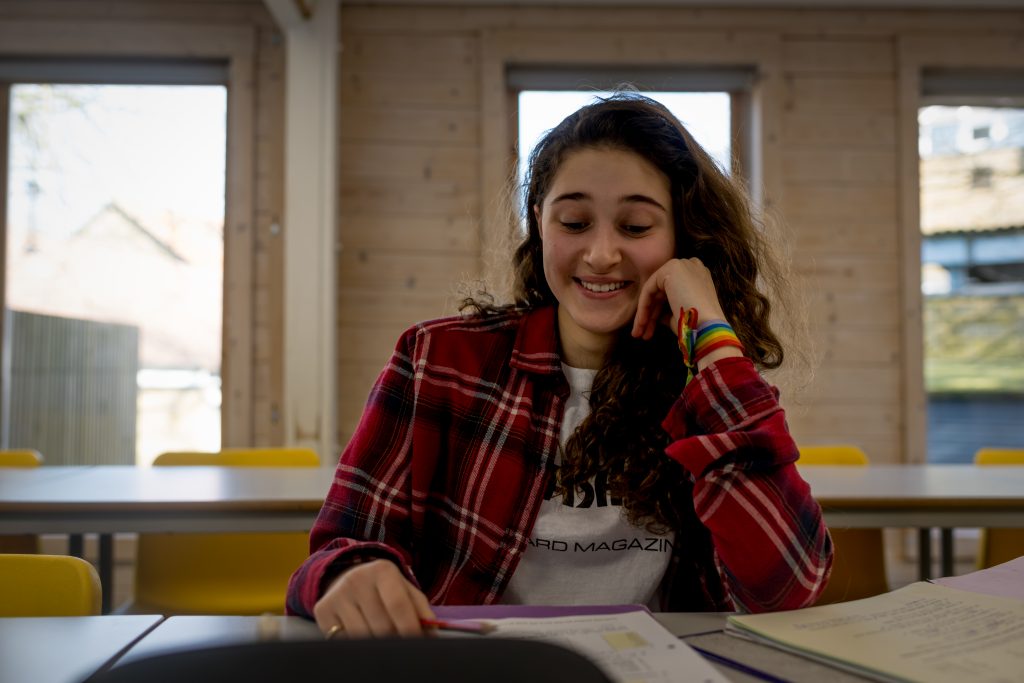
Spanish
Exam board: AQA
In our increasingly globalised world, communicating in another language, learning about the political aspects of another country and having an understanding of a country’s society, literature and culture are invaluable. Spanish is an exciting and challenging course that combines all of the above.
During the course, you will learn to communicate and debate on current affairs, politics and socio-economic issues related to Spain and the Spanish-speaking world. You will learn a lot about cultural references, the arts and the literature in the Hispanic world combined with the in-depth study of a film and a set text.
The course is very interactive and you will have the opportunity to develop your knowledge and language skills through a variety of different mediums such as TV, music, the internet and authentic texts. As well as topic-based lessons and weekly grammar lessons, you will improve your fluency and pronunciation in small groups as well as in speaking sessions with a language assistant.
Studying a language at A level leads to a range of career opportunities. Students who have studied languages go on to have careers in a variety of sectors including teaching, translating, sales and marketing, travel & tourism, journalism, fashion, work in the foreign office or secret service, interpreting and banking.
Spanish extends beyond the classroom at King Alfred and a number of extra-curricular activities are on offer. This includes an annual trip to San Sebastian.
Assessment
Assessment takes place at the end of the two year course.
- Paper 1: Listening, reading and writing (50%)
- Two hours & 30 minutes
- Paper 2: Writing (20%)
- Two hours
- Writing on a film and one set text
- Paper 3: Speaking (30%)
- 21-23 minutes
- Individual research project presentation and discussion followed by a discussion on one of the four sub-themes studied throughout the course.
Entry requirements
Grade 7-9 in Spanish GCSE are required to access the syllabus confidently.
Extra information
Each year we enter students into the Hispanic Theatre Festival at North London Collegiate School. One of the highlights for most students is the annual language and cultural enrichment trip to Salamanca. In addition to these students are given the opportunity to participate in:
- Outings to A level Spanish conferences
- Outings to the BFI for student conferences regarding Spanish film
- Theatre performances in Spanish in London (depending on what is currently showing)
Head of department: Camilla Parsons

Psychology
Exam board: AQA
A level Psychology will give you a good fundamental and lasting insight into human behaviour, thinking and reasoning. This will definitely help you to cope better with your own life, but also it will help you to gain a better understanding of others.
Assessment
The A level exam consists of three separate units. Each unit is assessed by a two hour exam, which comprises of multiple choice, short answer and extended writing questions.
- Paper 1: Introductory topics in Psychology
- Social influence: conformity, obedience, resistance to social pressures, minority influence and the role of social influence processes in social change.
- Memory: models of memory, explanations for forgetting, factors affecting the accuracy of eyewitness testimony, use of the cognitive interview in police setting.
- Attachments: caregiver-infant interactions in humans, stages of attachment, the role of the father, explanations of attachment, secure and insecure attachments, influence of early attachments on adult relationships.
- Psychopathology: definitions of abnormality, behavioural, cognitive and biological approach to explaining and treating disorders, phobias, depression, OCD.
- Paper 2: Psychology in context
- Approaches in psychology: origins of psychology, learning approaches, cognitive approach, biological approach, psychodynamic approach, humanistic approach.
- Biopsychology: the role of the nervous and endocrine systems on behaviour.
- Research methods: all methods and techniques of conducting independent research.
- Paper 3: Issues and options in Psychology
- Issues and debates in psychology: gender and culture in psychology, free will and determinism, the nature-nurture debate, holism and reductionism.
- Relationships: theories of romantic relationships, relationships formation, maintenance and breakdown, factors affecting attraction, nature of virtual relationships, levels of parasocial relationships.
- Schizophrenia: symptoms, validity of diagnosis, biological and psychological explanations, drug therapy and antipsychotics, cognitive behavioural therapy and family interventions.
- Forensic Psychology: issues in defining crime, offender profiling, types of offenders and investigative Psychology, geographical profiling, biological and psychological theories of crime, dealing with offending behaviour, including recidivism, behaviour modification and anger management.
Entry requirements
Grade 6 in English GCSE.
Extra information
Every year students attend trips to Sigmund Freud’s house to explore the depth of the unconscious, London Zoo to experience the systematic desensitisation therapy for arachnophobia, Natural History Museum to look at the evolutionary impacts on human behaviour. We area also regular visitors to the Wellcome Collection for their frequent mental health events.
Head of Department: Ania Herbut

Sociology
Exam board: AQA
Is turning to crime a choice? Does a ‘gender gap’ exist within the education system? Is the divorce rate rising? Does social class still exist in society? Is gender a social construct? How has British society changed over the last 50 years? These are some of the questions that Sociology, the study of human society and its institutions, seeks to answer.
For most students, Sociology is more than just an academic discipline, its a means to develop tools and skills to understand and shape the society we currently live in. We look at various institutions in society, such as, the family, the education system, the government and criminal justice system, religion, the healthcare system and much more. By critically examining evidence relating to British and international societies, you develop the ability to comprehend the social world you live in but also consider what future societies may look like too. Sociology lessons will challenge you and encourage you to go ‘beyond the textbook’ as we not only study sociological thought and research but also discover evidence from sources that are often overlooked but still prove to be insightful, such as, newspaper articles, social media, film, and music.
Assessment
The course is examined by three final two-hour exams which are each worth 33.3% of the overall grade.
- Paper 1: Education with Theory and Methods
- Education
- Methods in Context
- Theory and Methods
- Paper 2: Topics in Sociology
- Families and Households
- Beliefs in Society
- Paper 3: Crime and Deviance with Theory and Methods
- Crime and Deviance
- Theory and Methods
Education:
- The role and functions of the education system, including its relationship to the economy and to class structure
- Differential educational achievement of social groups by social class, gender and ethnicity in contemporary society
- Relationships and processes within schools, with particular reference to teacher/pupil relationships, pupil identities and subcultures, the hidden curriculum, and the organisation of teaching and learning
- The significance of educational policies, including policies of selection, marketisation and privatisation, and policies to achieve greater equality of opportunity or outcome, for an understanding of the structure, role, impact and experience of and access to education; the impact of globalisation on educational policy
Families and Households:
- The relationship of the family to the social structure and social change with particular reference to the economy and to state policies.
- Changing patterns of marriage, cohabitation, separation, divorce, childbearing and the life course, including the sociology of personal life, and the diversity of contemporary family and household structures.
- Gender roles, domestic labour and power relationships within the family in contemporary society.
- The nature of childhood, and changes in the status of children in the family and society.
- Demographic trends in the United Kingdom since 1900: birth rates, death rates, family size, life expectancy, ageing population, and migration and globalisation.
Beliefs in Society:
- Ideology, science and religion, including both Christian and non-Christian religious traditions.
- The relationship between social change and social stability, and religious beliefs, practices and organisations.
- Religious organisations, including cults, sects, denominations, churches and New Age movements, and their relationship to religious and spiritual belief and practice.
- The relationship between different social groups and religious/spiritual organisations and movements, beliefs and practices.
- The significance of religion and religiosity in the contemporary world, including the nature and extent of secularisation in a global context, and globalisation and the spread of religions.
Crime and Deviance:
- Crime, deviance, social order and social control.
- The social distribution of crime and deviance by ethnicity, gender and social class, including recent patterns and trends in crime.
- Globalisation and crime in contemporary society; the media and crime; green crime; human rights and state crimes.
- Crime control, surveillance, prevention and punishment, victims, and the role of the criminal justice system and other agencies.
Theory and Methods:
- Quantitative and qualitative methods of research; research design.
- Sources of data, including questionnaires, interviews, participant and non-participant observation, experiments, documents and official statistics
- The distinction between primary and secondary data, and between quantitative and qualitative data.
- The relationship between positivism, interpretivism and sociological methods; the nature of ‘social facts’.
- The theoretical, practical and ethical considerations influencing choice of topic, choice of method(s) and the conduct of research.
- Consensus, conflict, structural and social action theories.
- The concepts of modernity and post-modernity in relation to sociological theory.
- The nature of science and the extent to which Sociology can be regarded as scientific.
- The relationship between theory and methods.
- Debates about subjectivity, objectivity and value freedom.
- The relationship between Sociology and social policy.
Entry requirements
Grade 6 in GCSE English or History.
Head of Department: Nabihah Ahmed

Spanish
Exam board: AQA
In our increasingly globalised world, communicating in another language, learning about the political aspects of another country and having an understanding of a country’s society, literature and culture are invaluable. Spanish is an exciting and challenging course that combines all of the above.
During the course, you will learn to communicate and debate on current affairs, politics and socio-economic issues related to Spain and the Spanish-speaking world. You will learn a lot about cultural references, the arts and the literature in the Hispanic world combined with the in-depth study of a film and a set text.
The course is very interactive and you will have the opportunity to develop your knowledge and language skills through a variety of different mediums such as TV, music, the internet and authentic texts. As well as topic-based lessons and weekly grammar lessons, you will improve your fluency and pronunciation in small groups as well as in speaking sessions with a language assistant.
Studying a language at A level leads to a range of career opportunities. Students who have studied languages go on to have careers in a variety of sectors including teaching, translating, sales and marketing, travel & tourism, journalism, fashion, work in the foreign office or secret service, interpreting and banking.
Spanish extends beyond the classroom at King Alfred and a number of extra-curricular activities are on offer. This includes an annual trip to San Sebastian.
Assessment
Assessment takes place at the end of the two year course.
- Paper 1: Listening, reading and writing (50%)
- Two hours & 30 minutes
- Paper 2: Writing (20%)
- Two hours
- Writing on a film and one set text
- Paper 3: Speaking (30%)
- 21-23 minutes
- Individual research project presentation and discussion followed by a discussion on one of the four sub-themes studied throughout the course.
Entry requirements
Grade 7-9 in Spanish GCSE are required to access the syllabus confidently.
Extra information
Each year we enter students into the Hispanic Theatre Festival at North London Collegiate School. One of the highlights for most students is the annual language and cultural enrichment trip to Salamanca. In addition to these students are given the opportunity to participate in:
- Outings to A level Spanish conferences
- Outings to the BFI for student conferences regarding Spanish film
- Theatre performances in Spanish in London (depending on what is currently showing)
Head of department: Camilla Parsons
Theatre Studies
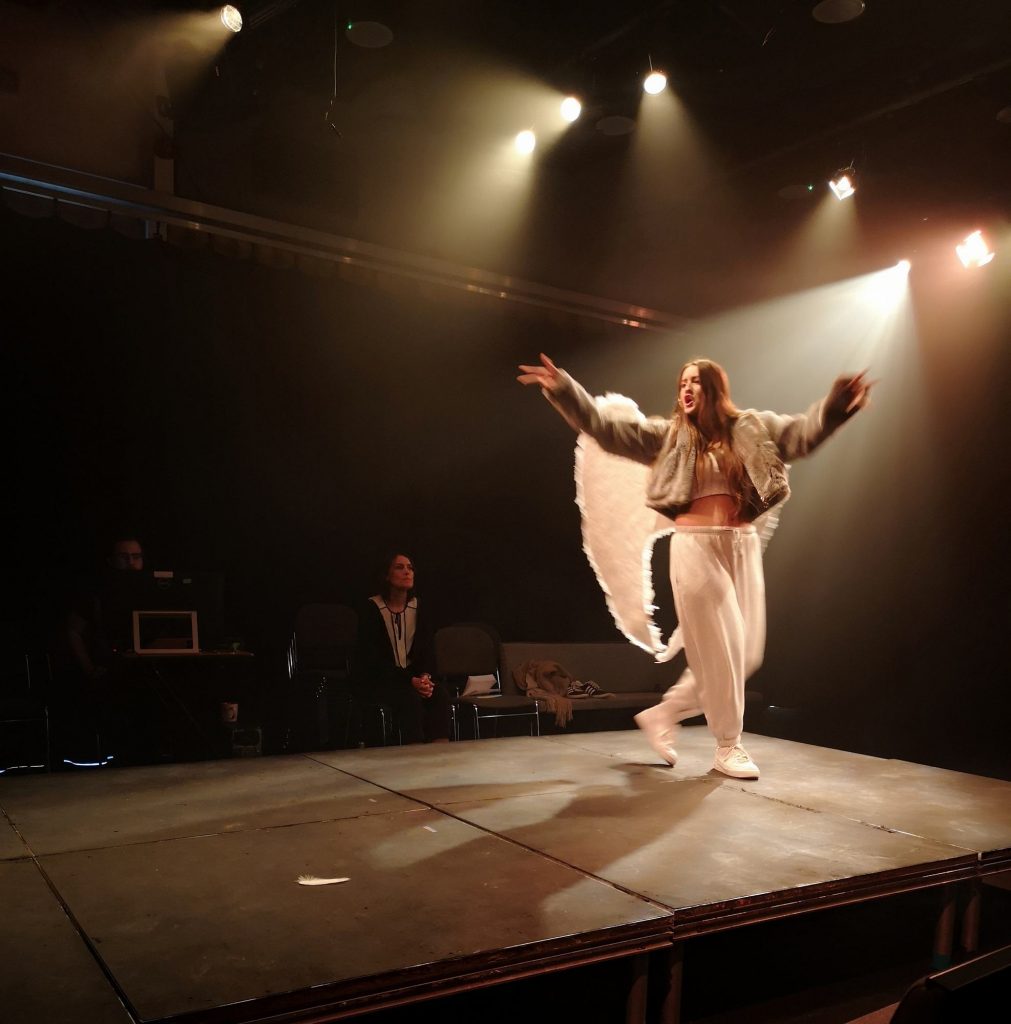
Theatre Studies
Exam board: AQA
We want students to have an inspiring experience of A level Drama and Theatre.
This qualification emphasises practical creativity alongside research and theoretical understanding. Students learn through experience, seeing theatre and making theatre for themselves. Students are introduced to a wide range of theatrical styles and contexts as they explore plays practically, devise and work on performances. Students can choose to develop as a: Performer; Designer (lighting, sound, set, costume, puppets); Director; Combination of these.
There will be appropriate enrichment activities over the two years including masterclasses, workshops and outings to enhance student learning. Whichever option they choose, students will gain many invaluable skills, both theatrical and transferable, to expand their horizons.
This is an exciting course which is accepted by all universities as an entrance qualification. The course demands practical, creative and communication skills in almost equal measure meaning students are prepared for university and beyond.
Assessment
- Component 1: Drama & Theatre (40%)
- Written exam of 3 hours / Open book / 80 marks
- Section A: 1 question from a choice of set plays from List A (25 marks)
- Section B: question on a given extract from one of set plays from List B (30 marks)
- Section C: One question on the work of theatre makers in a single live theatre production (25 marks)
- Component 2: Creating Original Drama (Practical) (30%)
- The creating and performing devised drama influenced by the work of one prescribed practitioner
- Working notebook (40 marks) / Devised performance (20 marks)
- 60 marks in total
- Marked by teachers & moderated by AQA
- (postal moderation from requested sample)
- Component 3: Making Theatre (Practical) (30%)
- Practical exploration & theatrical interpretation of three extracts (extracts 1,2 & 3).
- Methodology of a prescribed practitioner must be applied to extract 3
- Performance of extract 3 (40 marks) / Reflective report (20 marks)
- 60 marks in total
- Marked by AQA (visiting examiner)
Entry requirements
GCSE 6-7 English or Drama.
Extra information
We pride ourselves on running lots of different productions, trips, competitions and workshops that you can get involved in. These include but are not limited to:
- The Senior School Show
- School Shakespeare
- ISTA (International Schools Theatre Association) Festivals in Europe
- New Views. National Theatre Playwriting Competition
- Theatre Trips
- Drama Workshops
- Masterclasses
- Audition Technique Classes
Head of department: Lucy Hall
Three Dimensional Design (Art & Design)
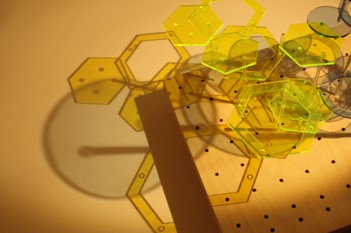
Three Dimensional Design (Art & Design)
Exam Board: WJEC – Eduqas
A course in 3D Design offers a unique opportunity within the curriculum for candidates to identify and solve real world problems. Using insights to gain an understanding of their user, they design and then manufacture solutions to a wide range of human centred project contexts. This will relate to an area of the candidates personal design interest and can include architecture, furniture design, environmental design, jewellery, interaction design and product design, too name but a few of these potential areas to specialise in.
This A level course is intended to be of interest to candidates with a real passion for design and is suitable for those students wanting a career in design or associated areas. The program of study is based entirely on coursework and has a focus upon being ‘hands on’, proactive, independent learning with the ability to ‘think through making’ at the heart of its pedagogy.
In the first-year students will take part in a range of projects that build their subject specific knowledge, skills and understanding. In the final year of the course students will complete two units of work for the A level award.
Assessment
- Component 1: Personal Investigation (60%)
- The Personal Investigation – two integrated parts:
- A major in-depth critical, practical and theoretical investigative project and outcomes based on themes and that have personal significance;
- An extended written element of 1000 words minimum, which may contain images and texts and must clearly relate to practical and theoretical work using an appropriate working vocabulary and specialist terminology.
- The Personal Investigation – two integrated parts:
- Component 2: Externally Set Assignment (40%)
- Part 1 & 2: Preparatory study period and 15 hours sustained focus work
- Externally set assignment. Responses take the form of critical, practical and theoretical preparatory work/supporting studies, which inform the resolution of ideas in the 15 hours sustained focus study. Planning has to relate to the outcomes. The department has two extremely well equipped “university level” workshops and two design studios with the latest CAD/CAM. There is a blacksmith’s forge and outdoor project works. There are trips to design weeks and graduate shows. The department also has excellent links with Eindhoven’s Design Academy and Northumbria University, considered two of the best HE Design courses in the world.
Entry requirements
Ideally, DT at GCSE but students who have only studied Art will also be considered.
Basic skills needed include ICT, CAD, sketching, modelling and researching, all of which are developed on the course. Students will also need to be familiar with workshop practice and have a basic grounding in the use of hand tools and workshop machinery.
Head of Department: Miranda Socratous
UAL Extended Diploma: Performing & Production Arts
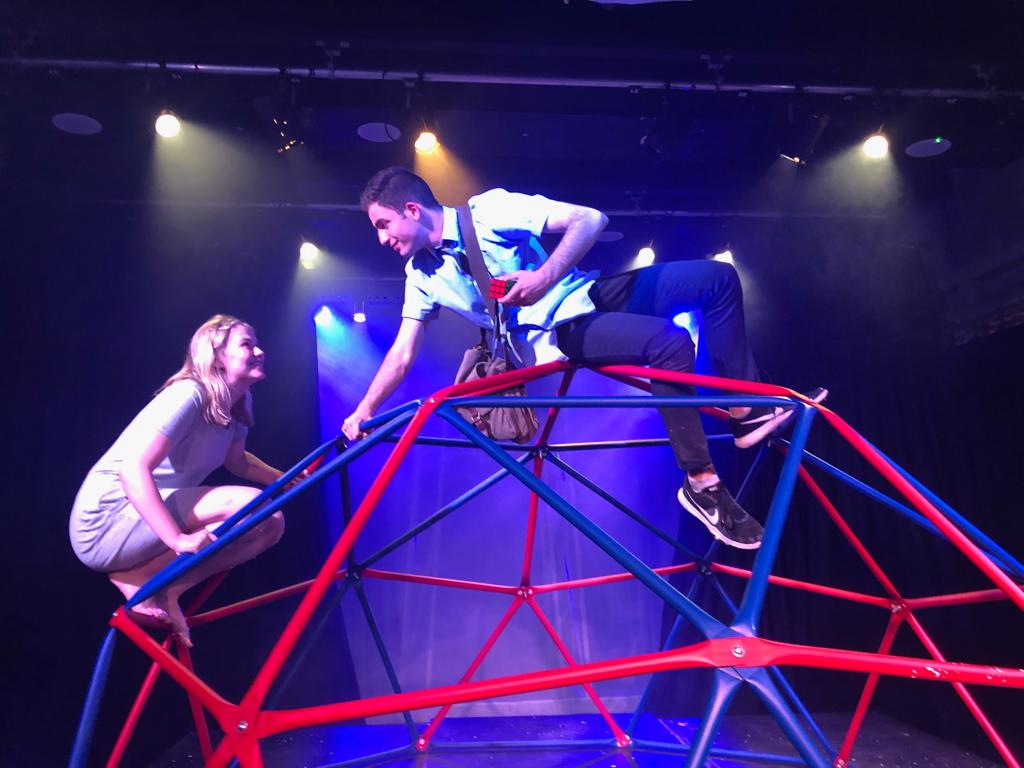
UAL Extended Diploma: Performing & Production Arts
Exam board: University of the Arts London (UAL)
This Level 3 Extended Diploma in Performance and Production Arts is an alternative route at post GCSEs. Moving away from a more traditional route of study, this vocational course in performance has been designed to provide students with the skills, knowledge and understanding of a wide range of performance and production disciplines.
Over the two years, there will be many exciting opportunities to perform; including singing showcases, music concerts, drama performances and full-scale productions.
Lessons are taught practically, although students are expected to research and record their own progress through log books and in feedback sessions.
This rigorous course mean that students have to be equally energised and committed to developing both their practical skills and academic appreciation of the arts.
At the end of their two year training students will be well equipped to start their own career in the Performing Arts Industry or alternatively go on to study at University or Drama School.
UAL have produced a great video looking at the Extended Project part of the course which you can watch here.
Assessment
Students are assessed through rehearsals, practical performance, reflective journals (audio/ video and written) and evaluations. Independent research is moderated and written work is only set in order to aid progression and development throughout the programme. You can see examples of UAL Extended Essays here.
Continuous formative assessment is given throughout each project, this is made up of verbal feedback, teacher observations and tutor 1-2-1. At the end of each project each student receives a formal summative assessment that will be kept on record. It will highlight how the student has met/is exceeding each unit’s assessment criteria as outlined in the UAL specification.
To achieve a PASS in any unit – all assessment criteria must be met. Units 8 and 12 are assessed and graded PASS, MERIT or DISTINCTION. Failure to meet assessment criteria will lead to a referral. Students are allowed ONE opportunity to redeem a referral.
UCAS Points
The UAL Level 3 Extended Diploma in Performance and Production Arts is included in the UCAS tariff and attracts tariff points : PASS 72 / MERIT 120 / DISTINCTION 168
Entry Requirements
It is recommended that students have a minimum of 4 x GCSE’s at grade 4 or above, at least one of which should be in a Performing Arts subject. Music or Dance grades of the appropriate level may also be considered as suitable entry qualifications.
Head of department: Lucy Hall
Read more about the UAL course here.

Theatre Studies
Exam board: AQA
We want students to have an inspiring experience of A level Drama and Theatre.
This qualification emphasises practical creativity alongside research and theoretical understanding. Students learn through experience, seeing theatre and making theatre for themselves. Students are introduced to a wide range of theatrical styles and contexts as they explore plays practically, devise and work on performances. Students can choose to develop as a: Performer; Designer (lighting, sound, set, costume, puppets); Director; Combination of these.
There will be appropriate enrichment activities over the two years including masterclasses, workshops and outings to enhance student learning. Whichever option they choose, students will gain many invaluable skills, both theatrical and transferable, to expand their horizons.
This is an exciting course which is accepted by all universities as an entrance qualification. The course demands practical, creative and communication skills in almost equal measure meaning students are prepared for university and beyond.
Assessment
- Component 1: Drama & Theatre (40%)
- Written exam of 3 hours / Open book / 80 marks
- Section A: 1 question from a choice of set plays from List A (25 marks)
- Section B: question on a given extract from one of set plays from List B (30 marks)
- Section C: One question on the work of theatre makers in a single live theatre production (25 marks)
- Component 2: Creating Original Drama (Practical) (30%)
- The creating and performing devised drama influenced by the work of one prescribed practitioner
- Working notebook (40 marks) / Devised performance (20 marks)
- 60 marks in total
- Marked by teachers & moderated by AQA
- (postal moderation from requested sample)
- Component 3: Making Theatre (Practical) (30%)
- Practical exploration & theatrical interpretation of three extracts (extracts 1,2 & 3).
- Methodology of a prescribed practitioner must be applied to extract 3
- Performance of extract 3 (40 marks) / Reflective report (20 marks)
- 60 marks in total
- Marked by AQA (visiting examiner)
Entry requirements
GCSE 6-7 English or Drama.
Extra information
We pride ourselves on running lots of different productions, trips, competitions and workshops that you can get involved in. These include but are not limited to:
- The Senior School Show
- School Shakespeare
- ISTA (International Schools Theatre Association) Festivals in Europe
- New Views. National Theatre Playwriting Competition
- Theatre Trips
- Drama Workshops
- Masterclasses
- Audition Technique Classes
Head of department: Lucy Hall

Three Dimensional Design (Art & Design)
Exam Board: WJEC – Eduqas
A course in 3D Design offers a unique opportunity within the curriculum for candidates to identify and solve real world problems. Using insights to gain an understanding of their user, they design and then manufacture solutions to a wide range of human centred project contexts. This will relate to an area of the candidates personal design interest and can include architecture, furniture design, environmental design, jewellery, interaction design and product design, too name but a few of these potential areas to specialise in.
This A level course is intended to be of interest to candidates with a real passion for design and is suitable for those students wanting a career in design or associated areas. The program of study is based entirely on coursework and has a focus upon being ‘hands on’, proactive, independent learning with the ability to ‘think through making’ at the heart of its pedagogy.
In the first-year students will take part in a range of projects that build their subject specific knowledge, skills and understanding. In the final year of the course students will complete two units of work for the A level award.
Assessment
- Component 1: Personal Investigation (60%)
- The Personal Investigation – two integrated parts:
- A major in-depth critical, practical and theoretical investigative project and outcomes based on themes and that have personal significance;
- An extended written element of 1000 words minimum, which may contain images and texts and must clearly relate to practical and theoretical work using an appropriate working vocabulary and specialist terminology.
- The Personal Investigation – two integrated parts:
- Component 2: Externally Set Assignment (40%)
- Part 1 & 2: Preparatory study period and 15 hours sustained focus work
- Externally set assignment. Responses take the form of critical, practical and theoretical preparatory work/supporting studies, which inform the resolution of ideas in the 15 hours sustained focus study. Planning has to relate to the outcomes. The department has two extremely well equipped “university level” workshops and two design studios with the latest CAD/CAM. There is a blacksmith’s forge and outdoor project works. There are trips to design weeks and graduate shows. The department also has excellent links with Eindhoven’s Design Academy and Northumbria University, considered two of the best HE Design courses in the world.
Entry requirements
Ideally, DT at GCSE but students who have only studied Art will also be considered.
Basic skills needed include ICT, CAD, sketching, modelling and researching, all of which are developed on the course. Students will also need to be familiar with workshop practice and have a basic grounding in the use of hand tools and workshop machinery.
Head of Department: Miranda Socratous

UAL Extended Diploma: Performing & Production Arts
Exam board: University of the Arts London (UAL)
This Level 3 Extended Diploma in Performance and Production Arts is an alternative route at post GCSEs. Moving away from a more traditional route of study, this vocational course in performance has been designed to provide students with the skills, knowledge and understanding of a wide range of performance and production disciplines.
Over the two years, there will be many exciting opportunities to perform; including singing showcases, music concerts, drama performances and full-scale productions.
Lessons are taught practically, although students are expected to research and record their own progress through log books and in feedback sessions.
This rigorous course mean that students have to be equally energised and committed to developing both their practical skills and academic appreciation of the arts.
At the end of their two year training students will be well equipped to start their own career in the Performing Arts Industry or alternatively go on to study at University or Drama School.
UAL have produced a great video looking at the Extended Project part of the course which you can watch here.
Assessment
Students are assessed through rehearsals, practical performance, reflective journals (audio/ video and written) and evaluations. Independent research is moderated and written work is only set in order to aid progression and development throughout the programme. You can see examples of UAL Extended Essays here.
Continuous formative assessment is given throughout each project, this is made up of verbal feedback, teacher observations and tutor 1-2-1. At the end of each project each student receives a formal summative assessment that will be kept on record. It will highlight how the student has met/is exceeding each unit’s assessment criteria as outlined in the UAL specification.
To achieve a PASS in any unit – all assessment criteria must be met. Units 8 and 12 are assessed and graded PASS, MERIT or DISTINCTION. Failure to meet assessment criteria will lead to a referral. Students are allowed ONE opportunity to redeem a referral.
UCAS Points
The UAL Level 3 Extended Diploma in Performance and Production Arts is included in the UCAS tariff and attracts tariff points : PASS 72 / MERIT 120 / DISTINCTION 168
Entry Requirements
It is recommended that students have a minimum of 4 x GCSE’s at grade 4 or above, at least one of which should be in a Performing Arts subject. Music or Dance grades of the appropriate level may also be considered as suitable entry qualifications.
Head of department: Lucy Hall


